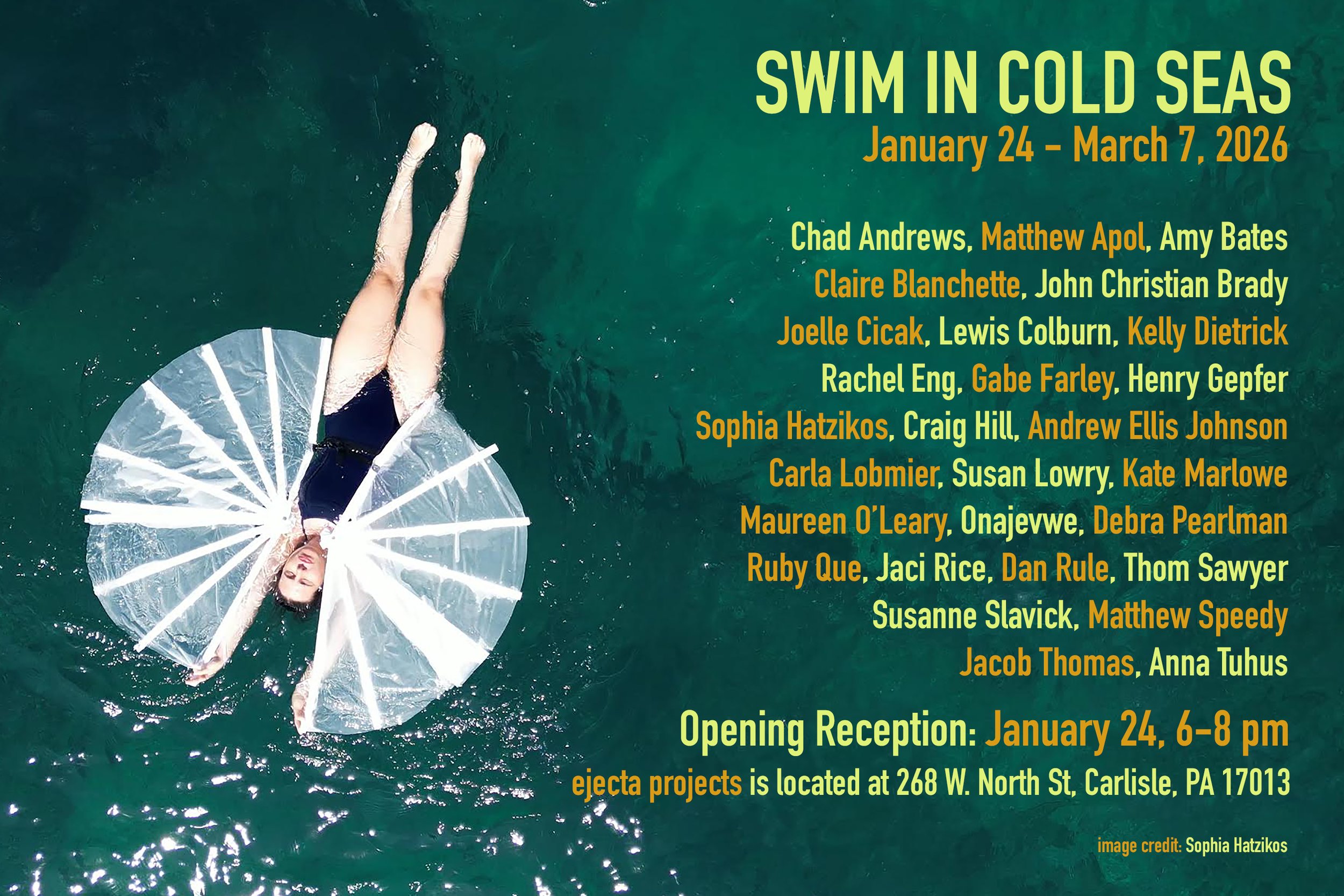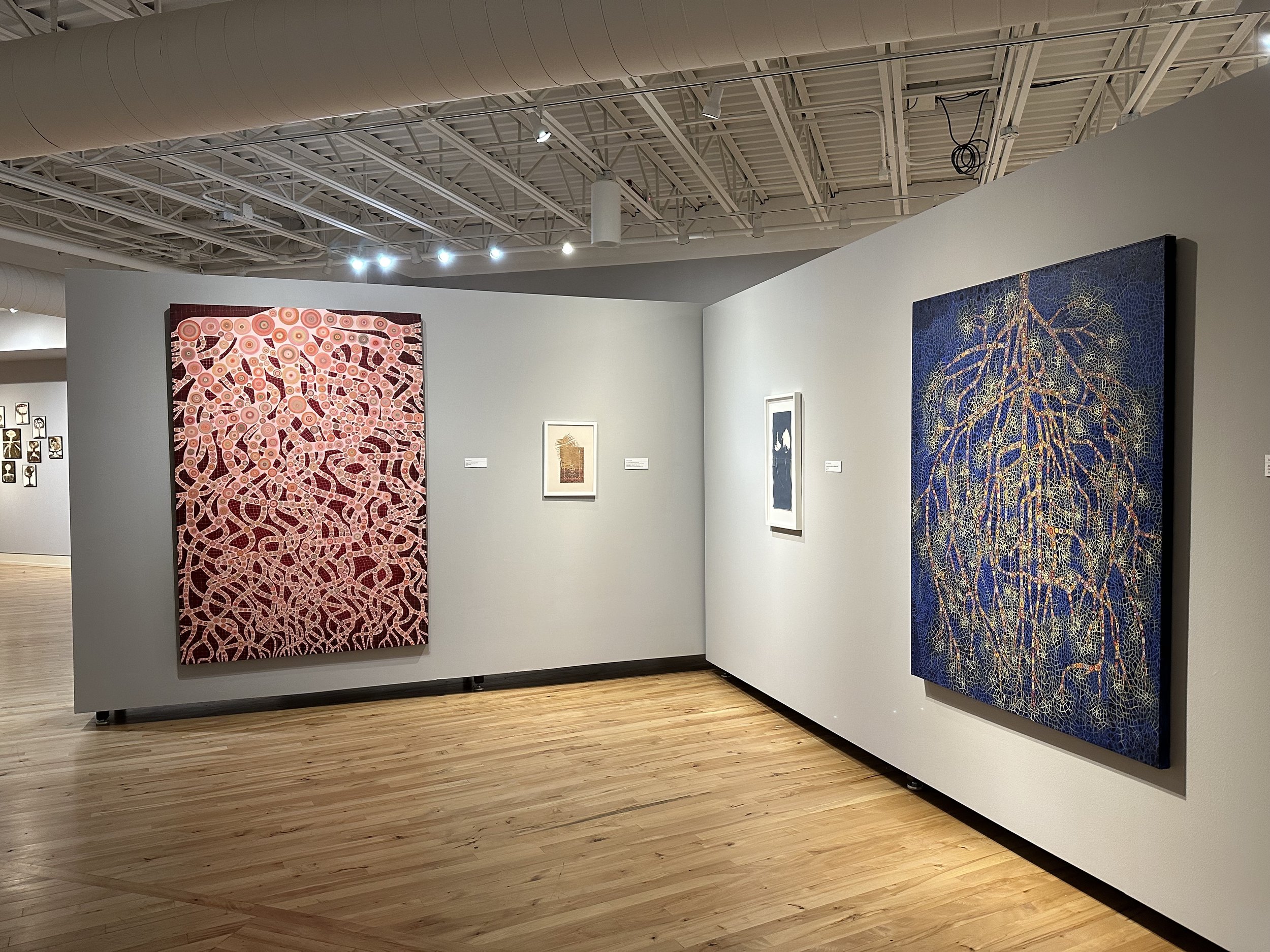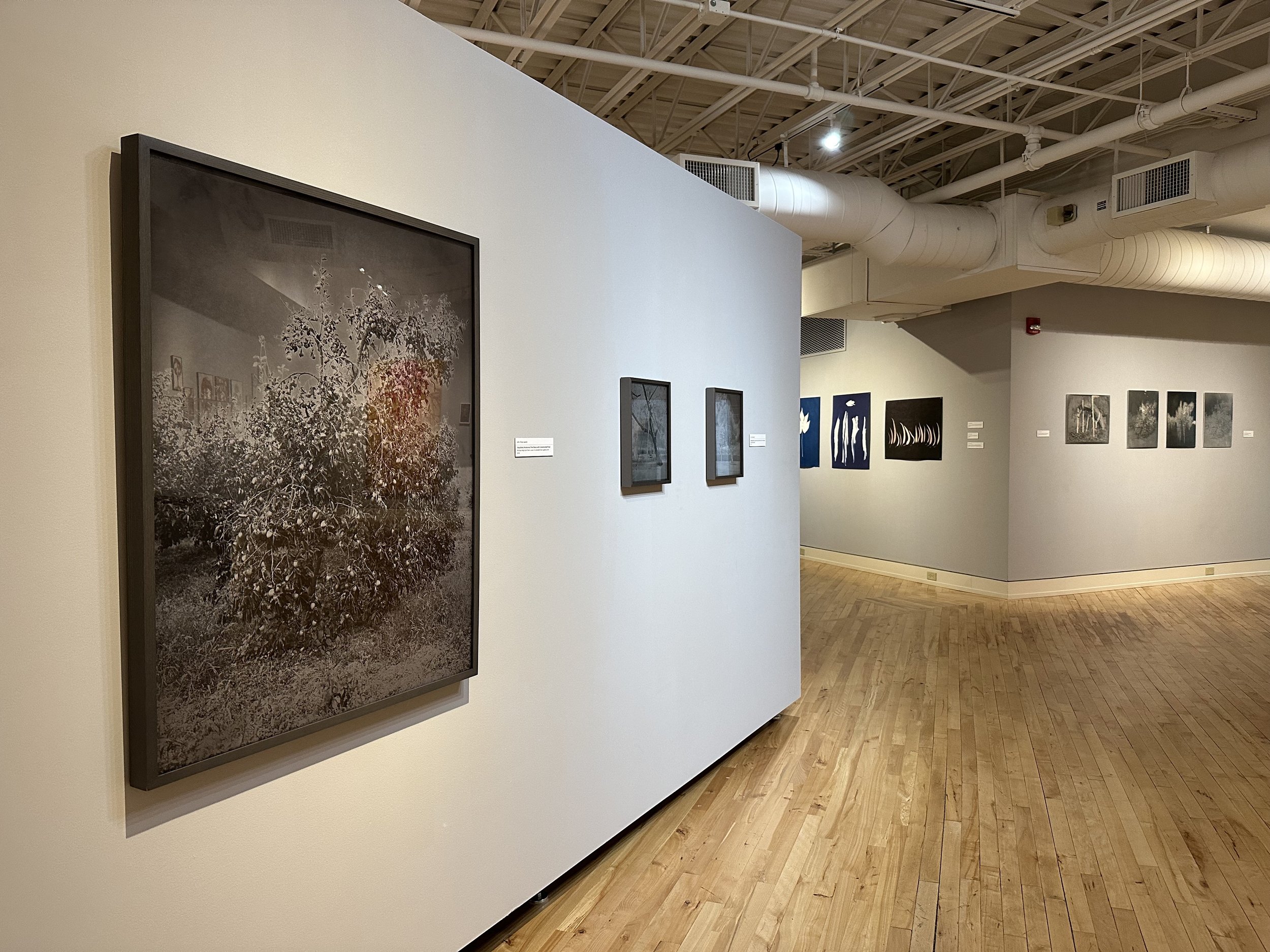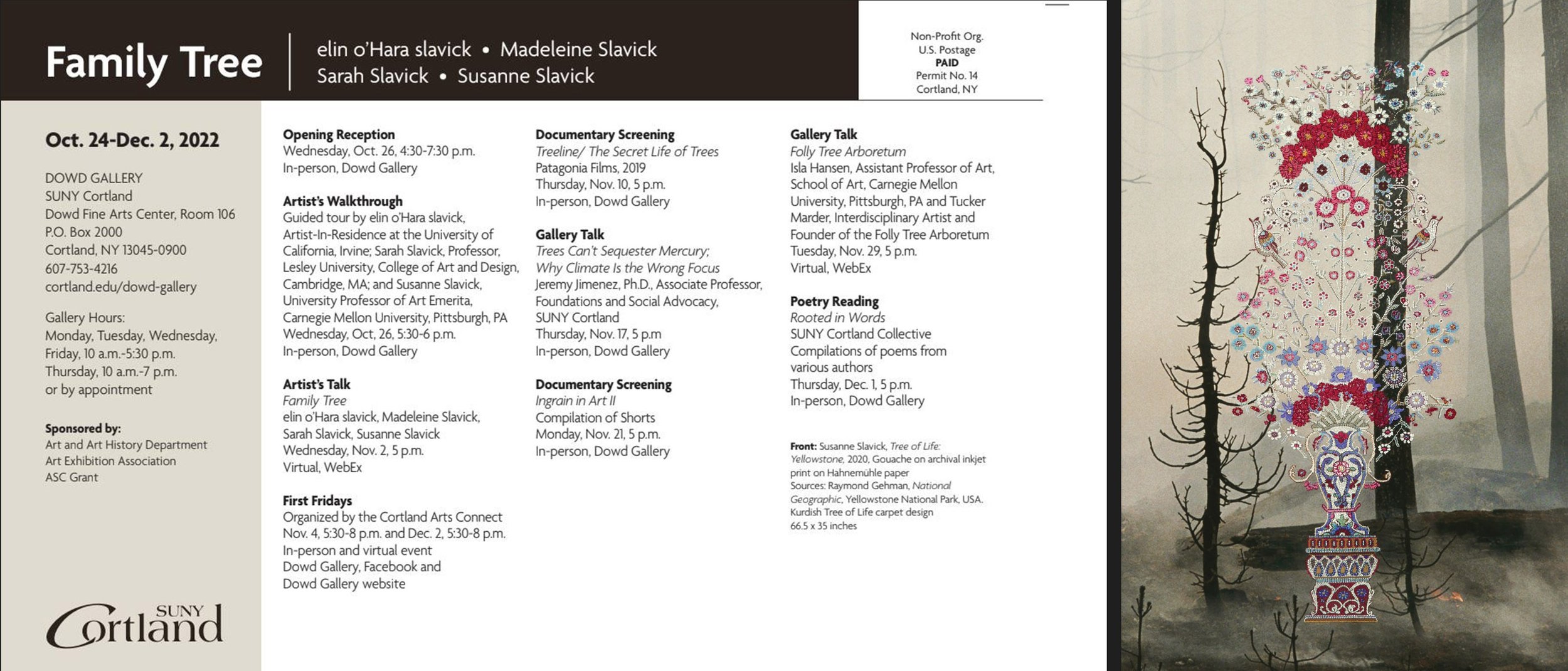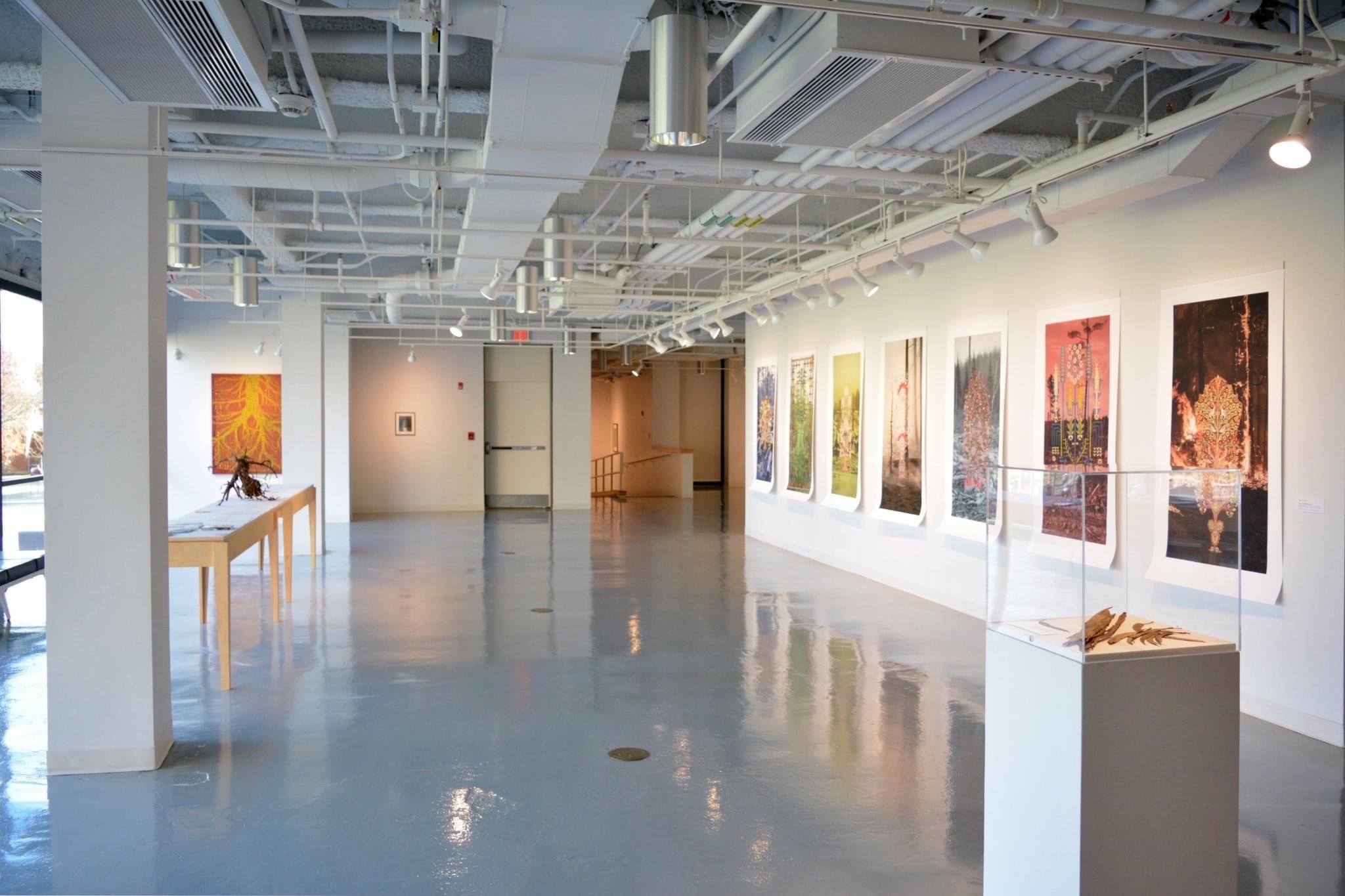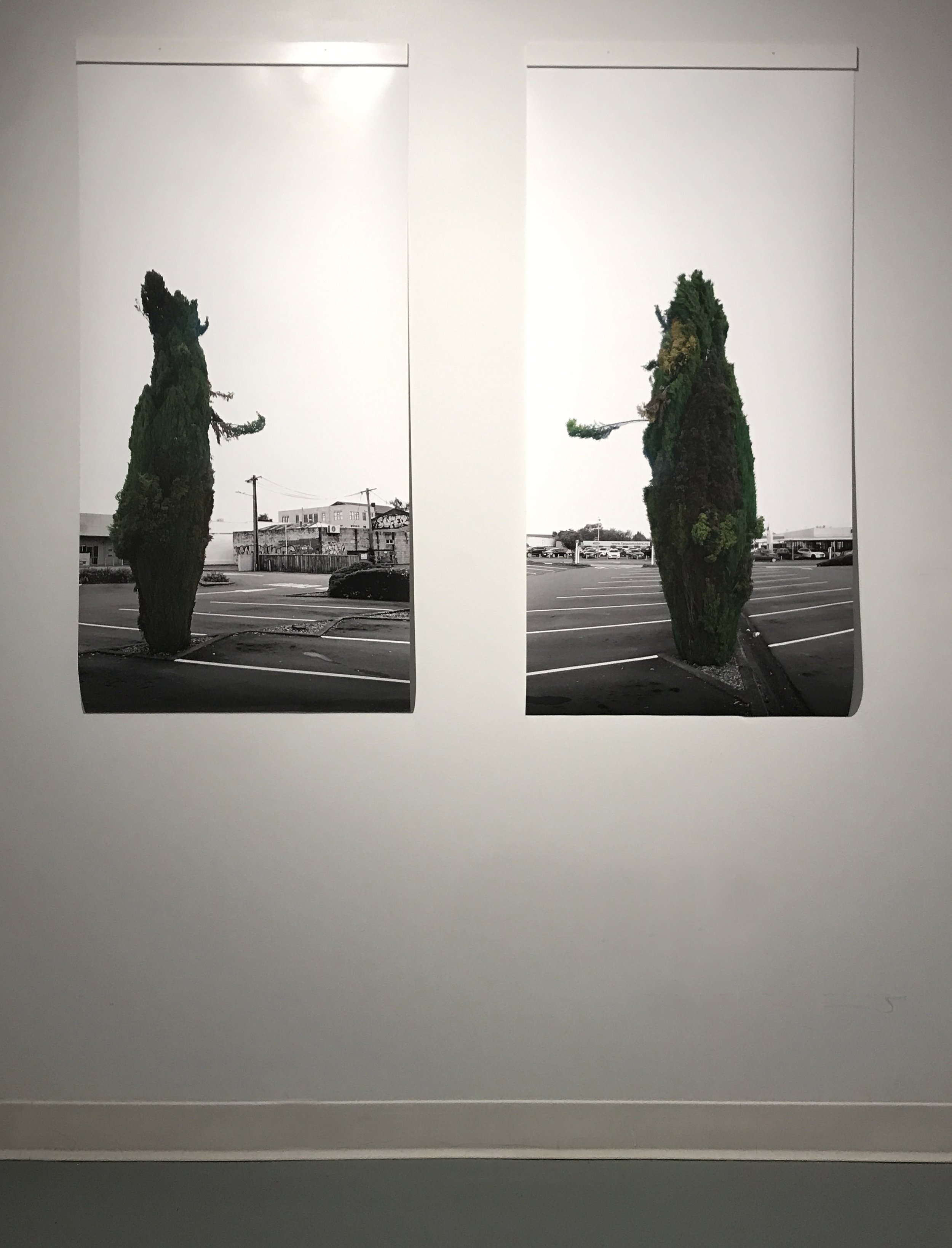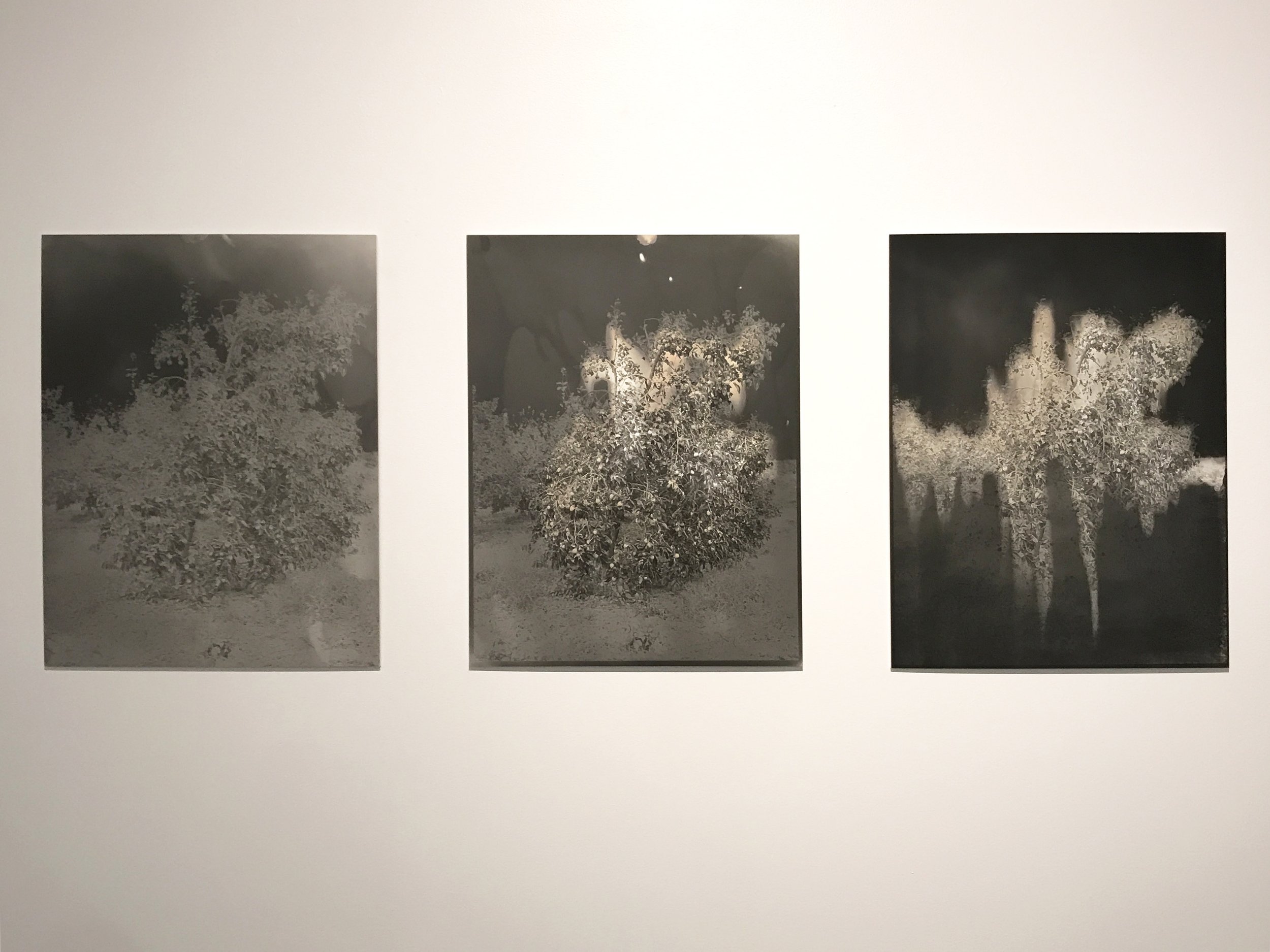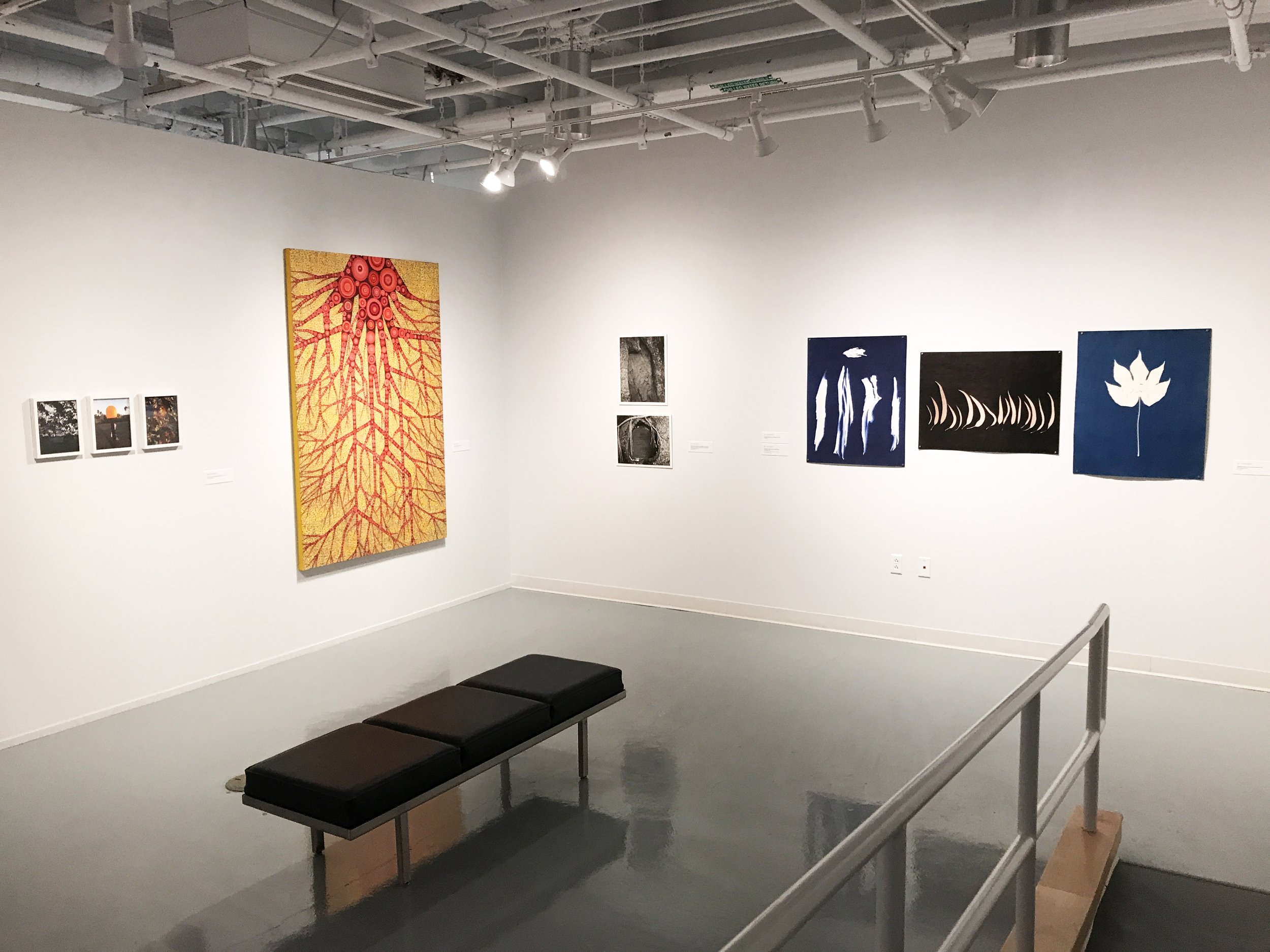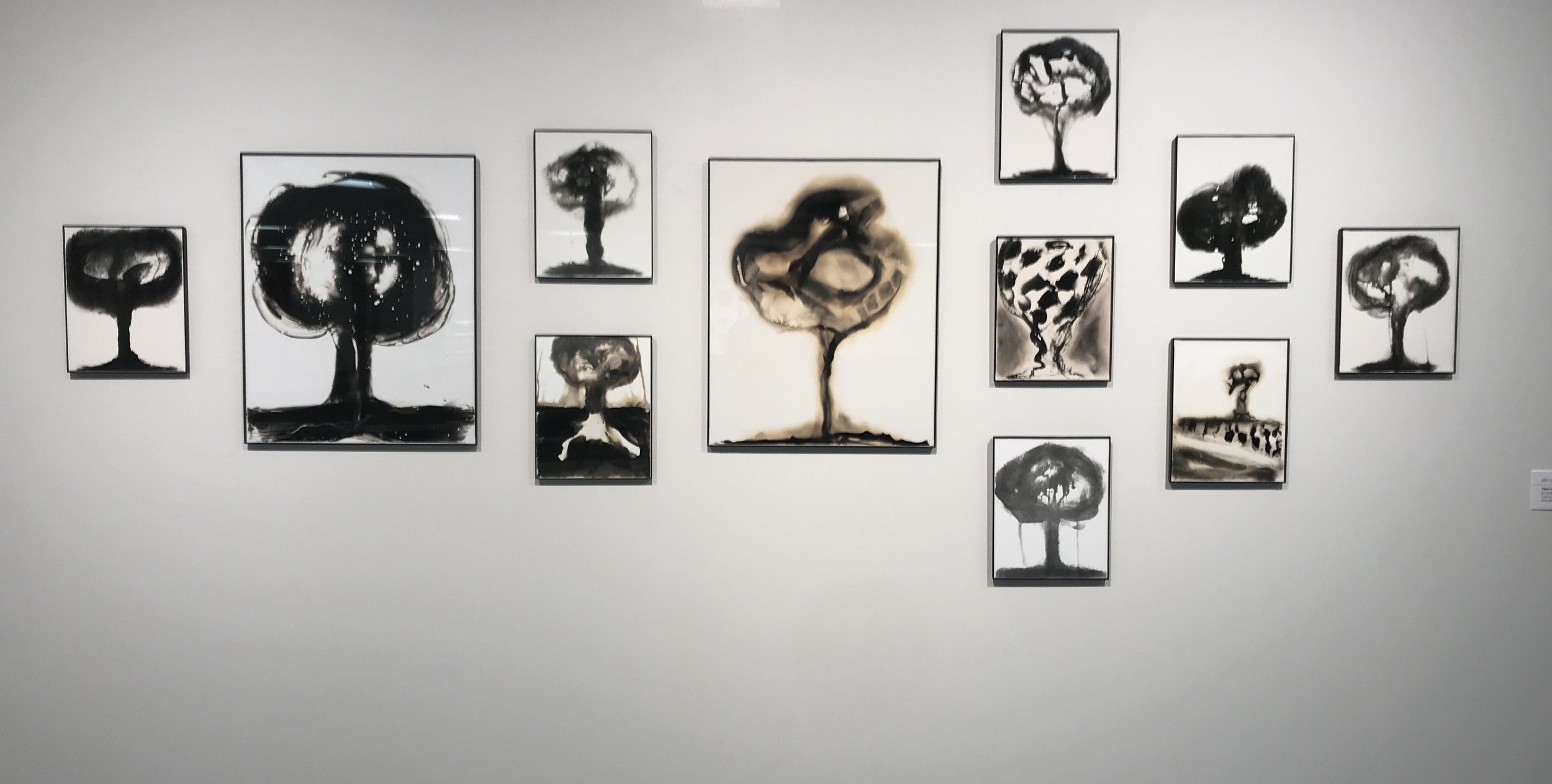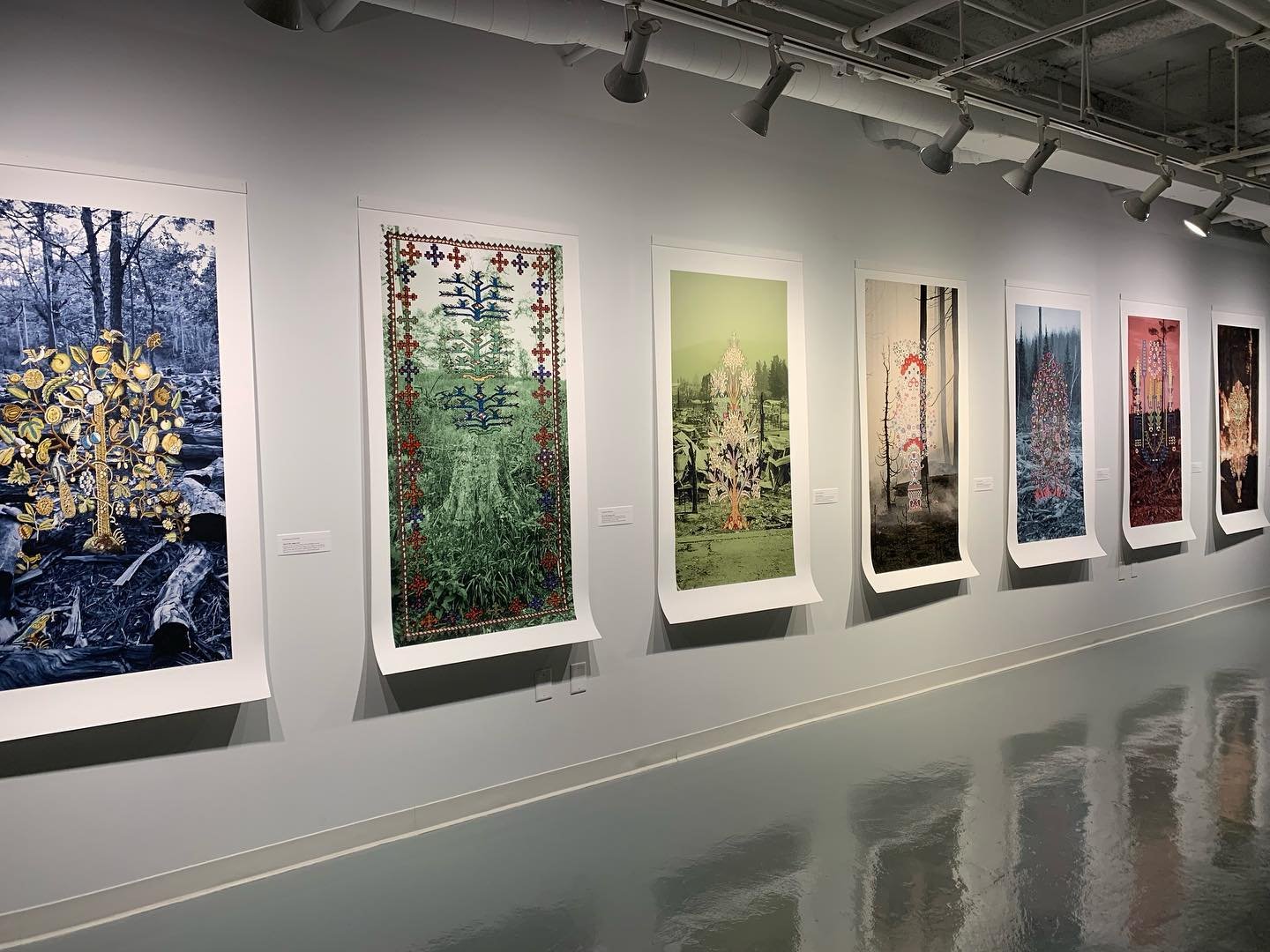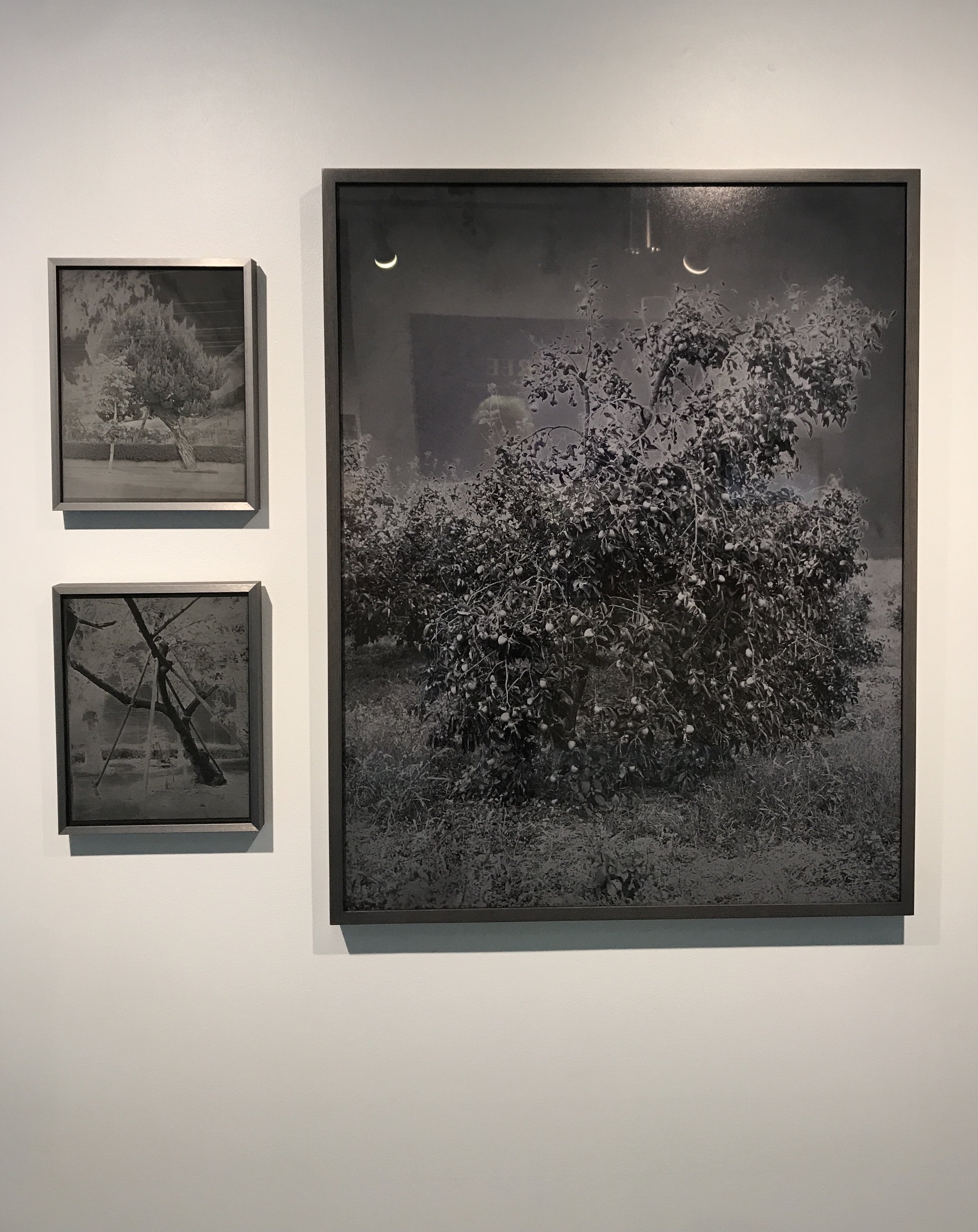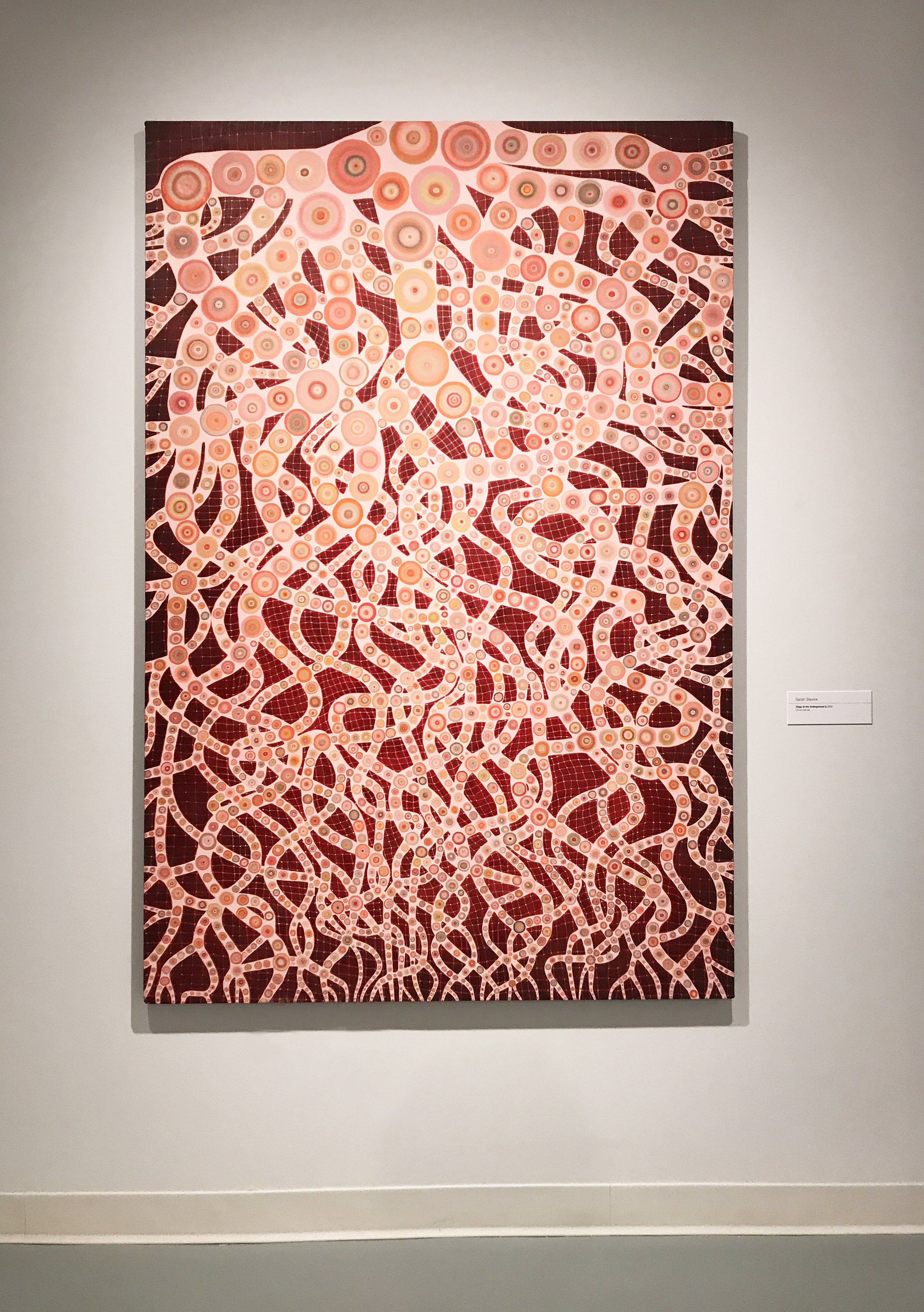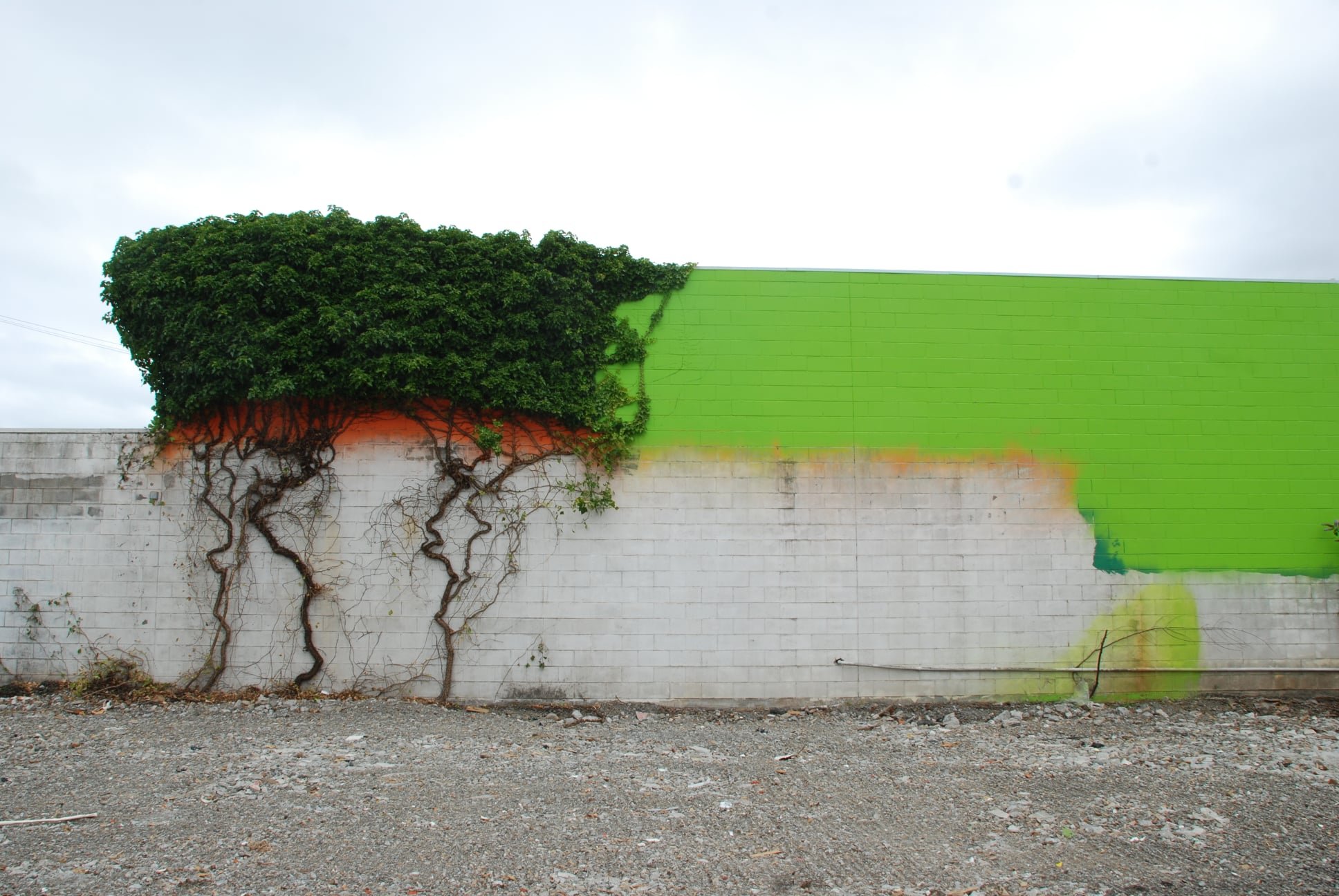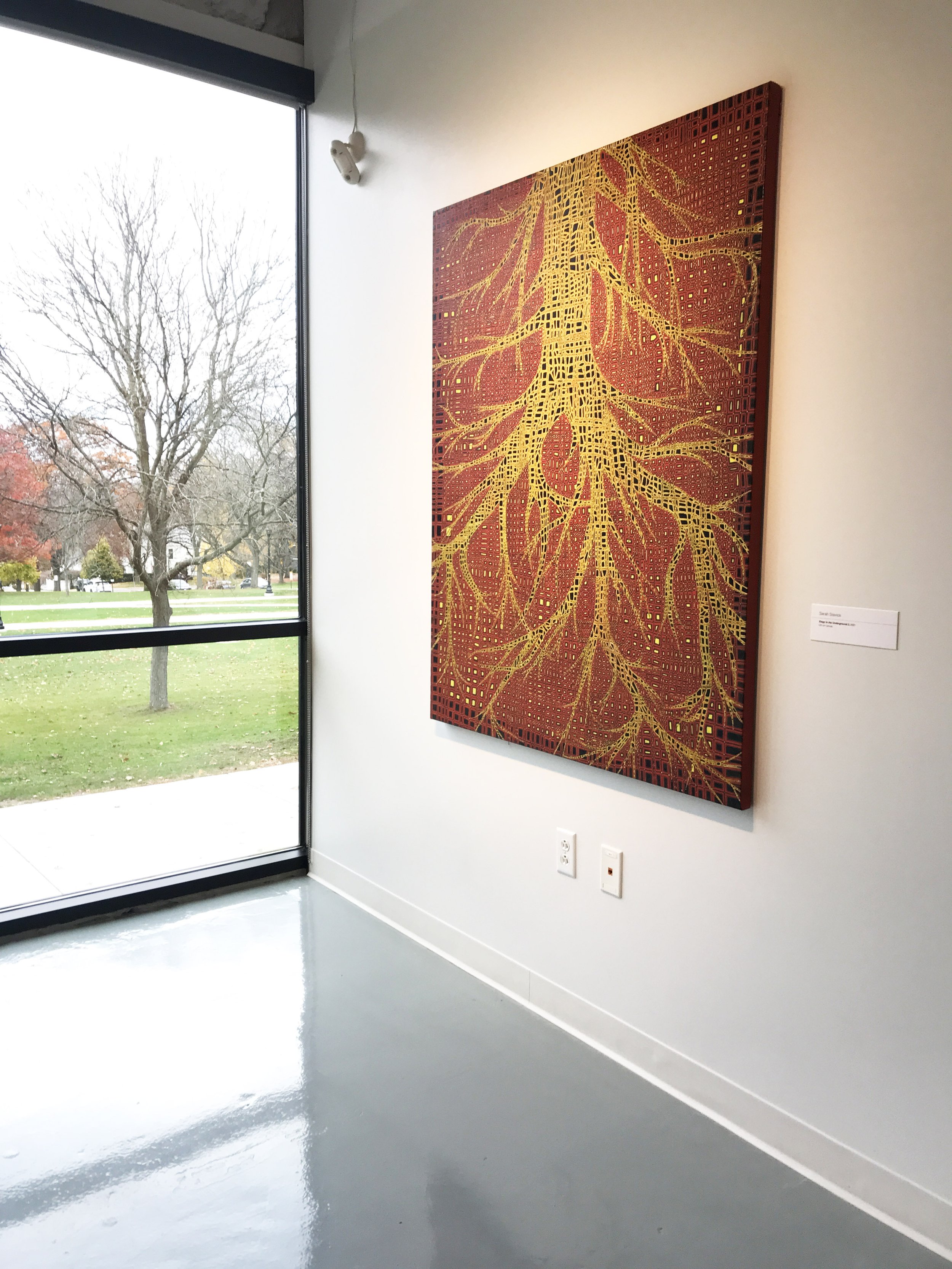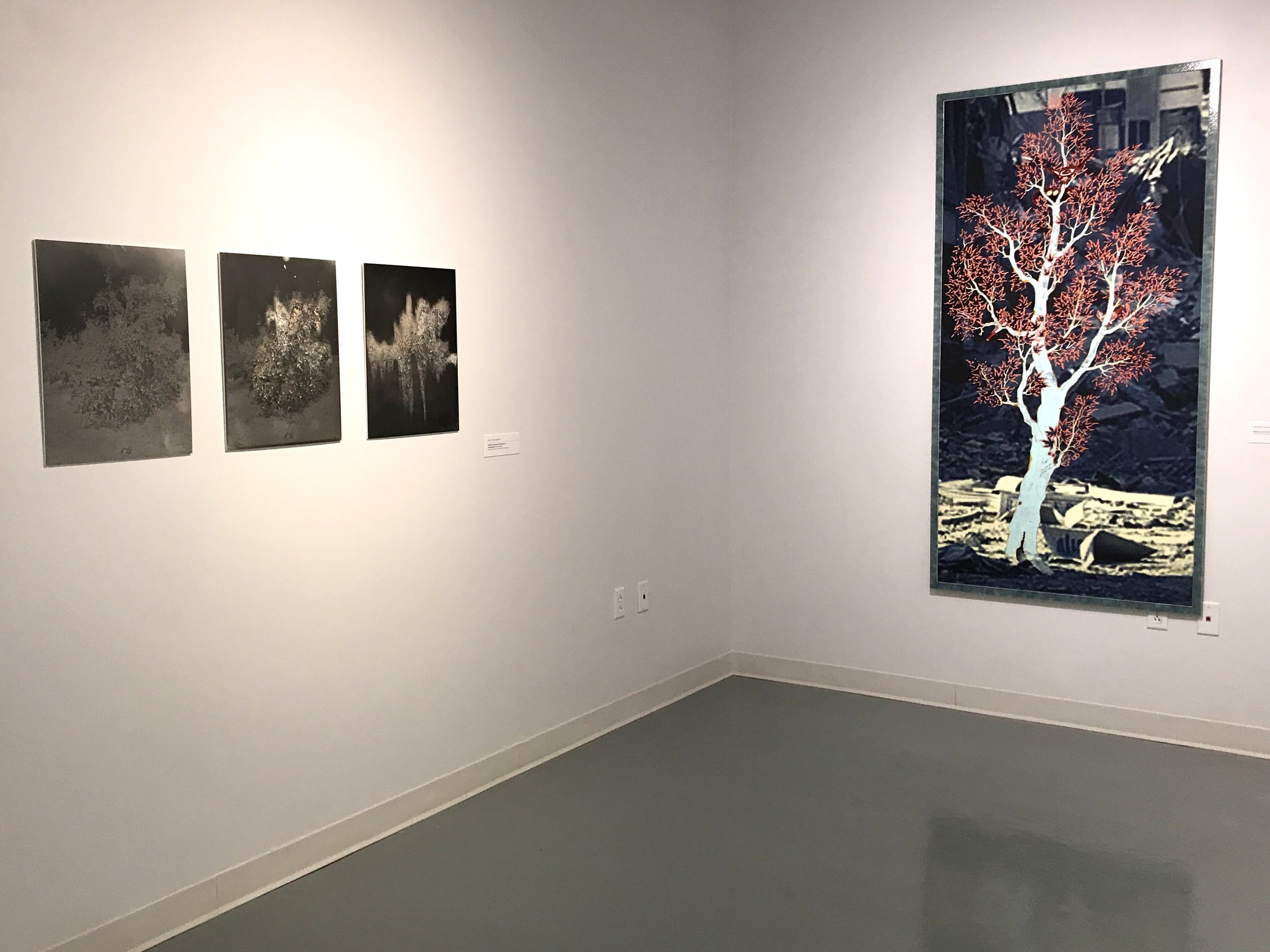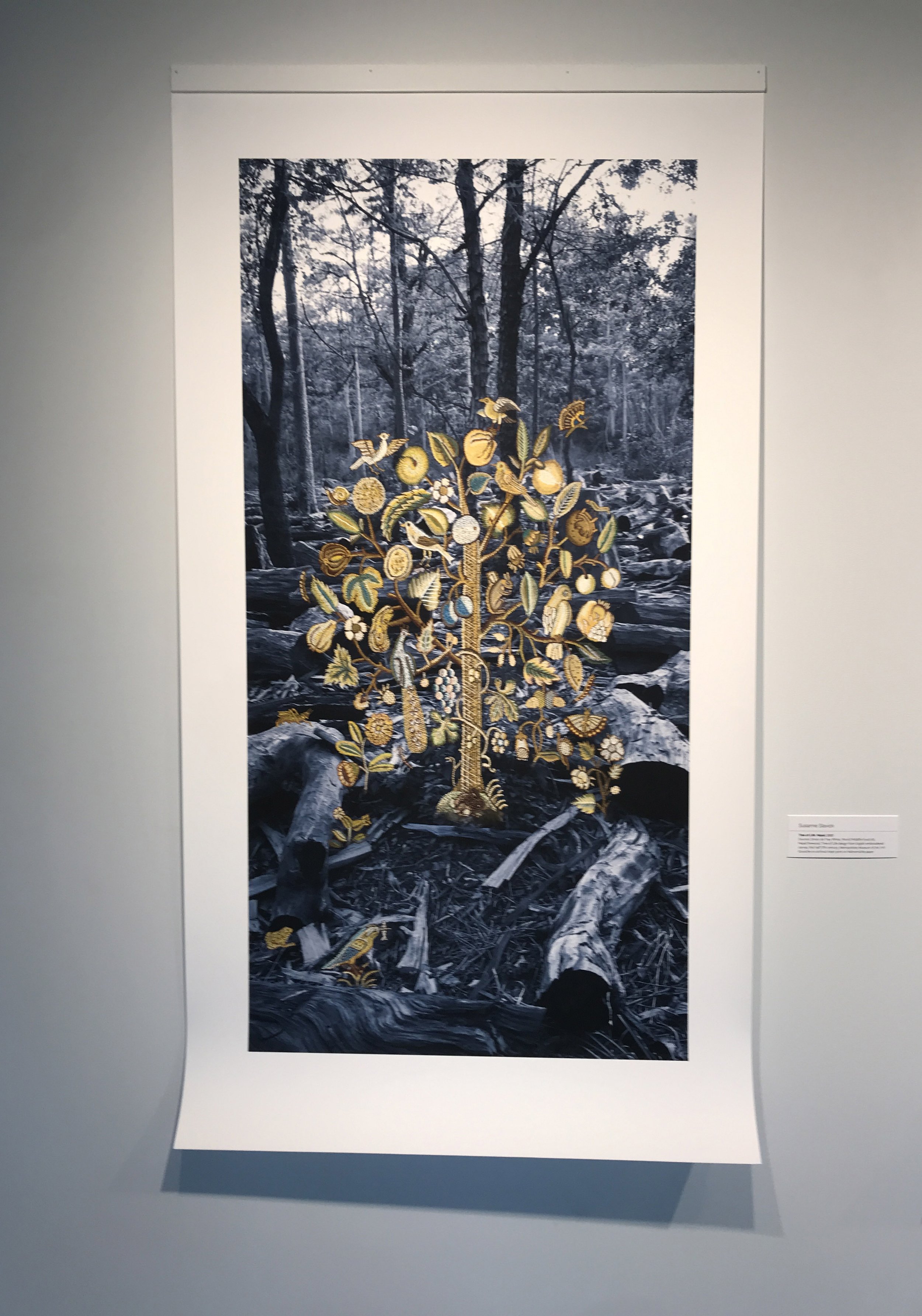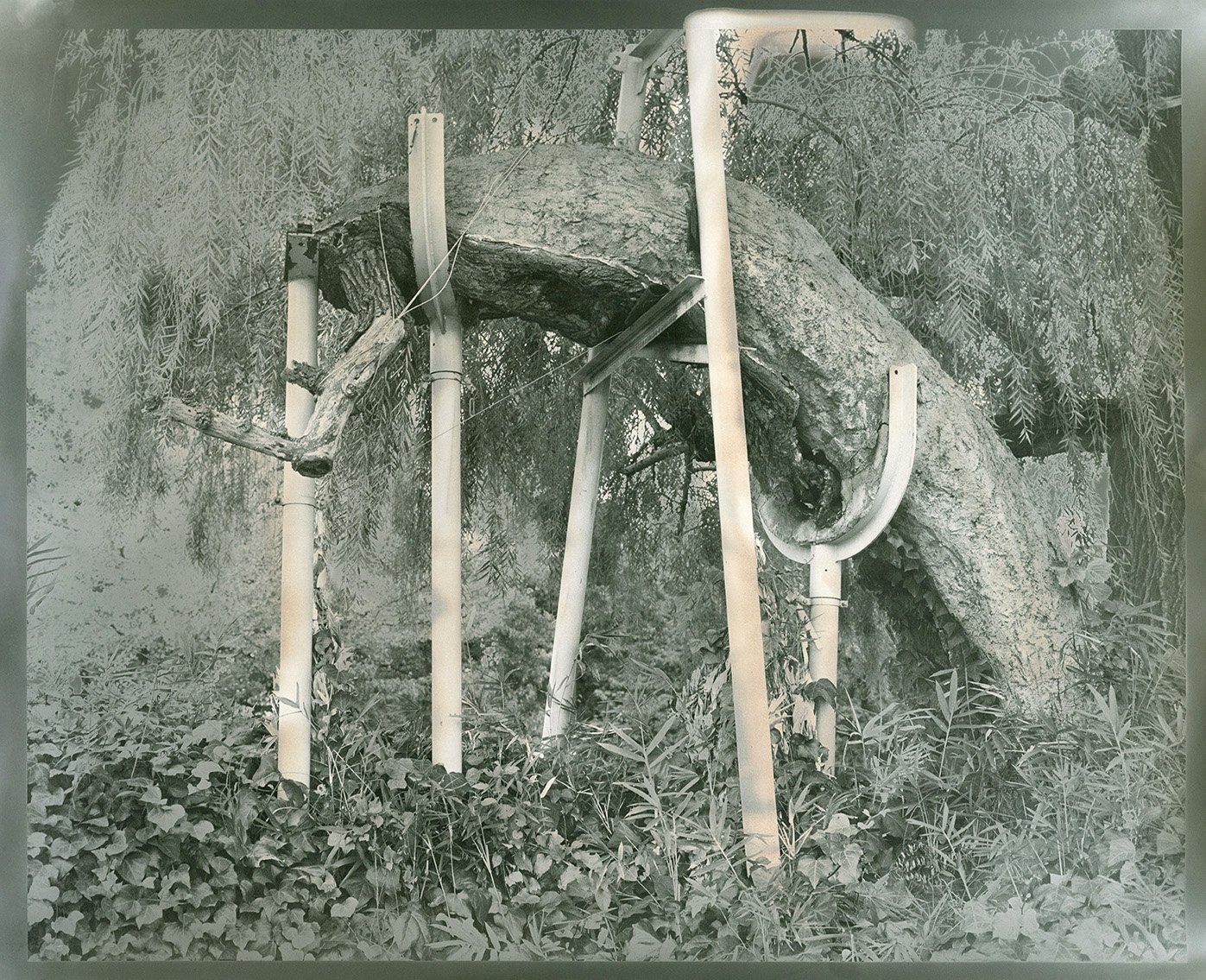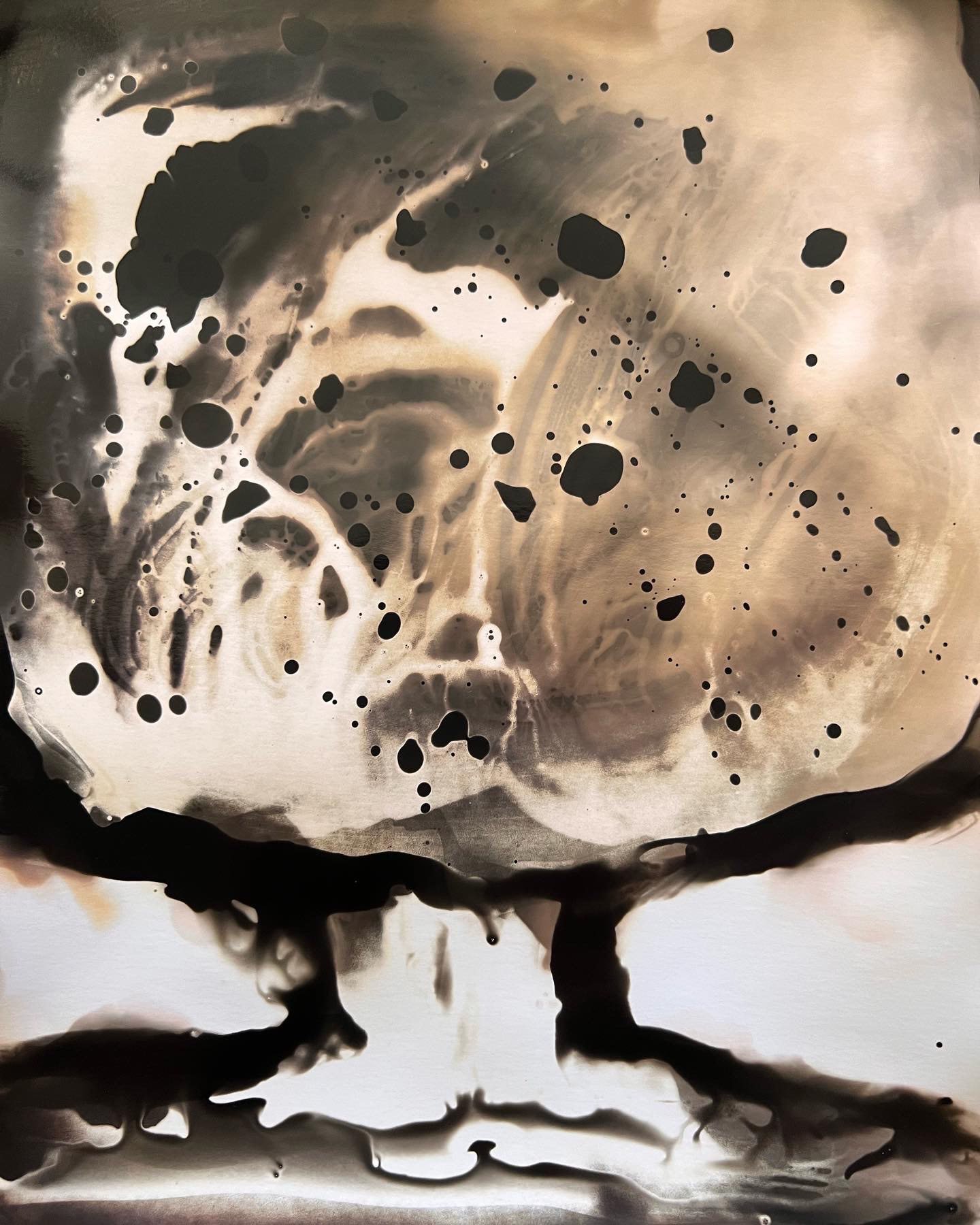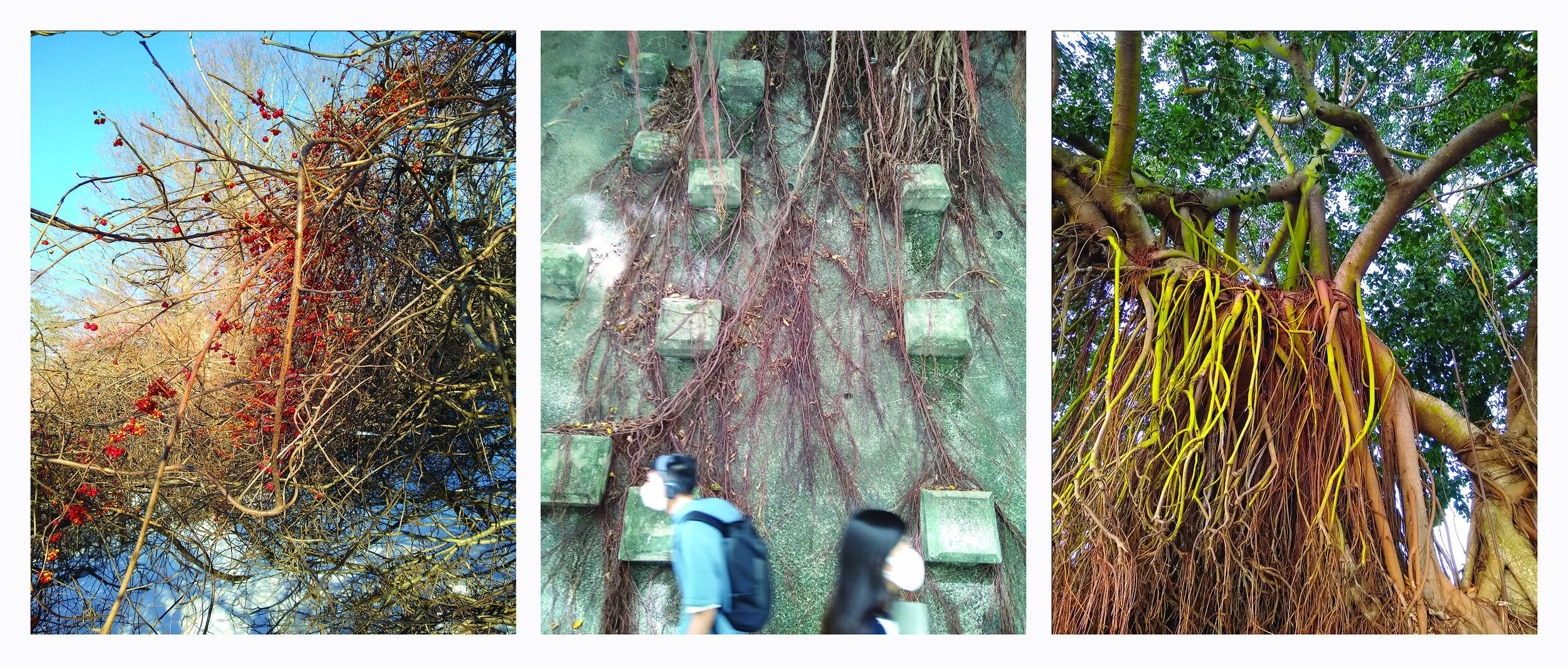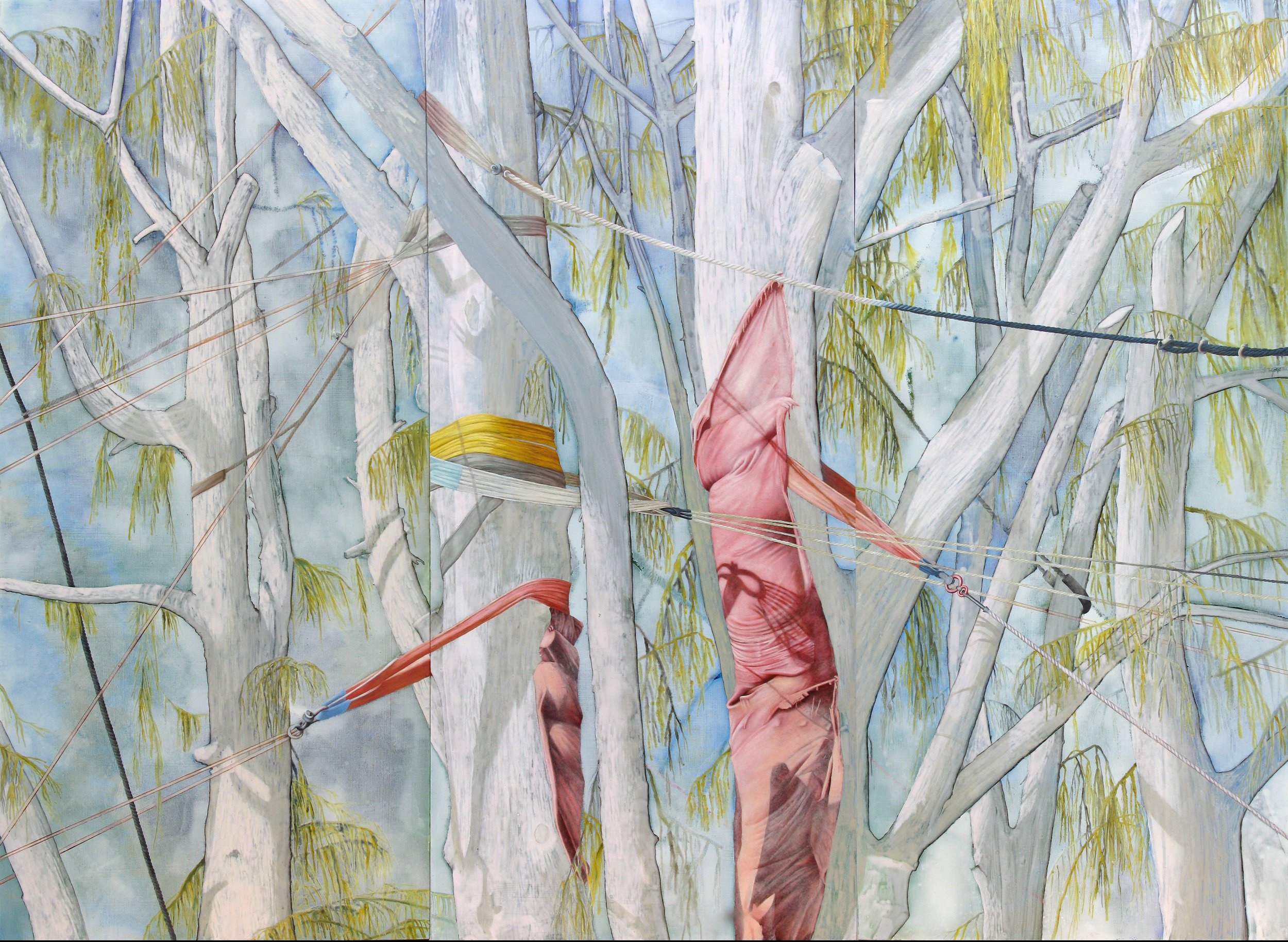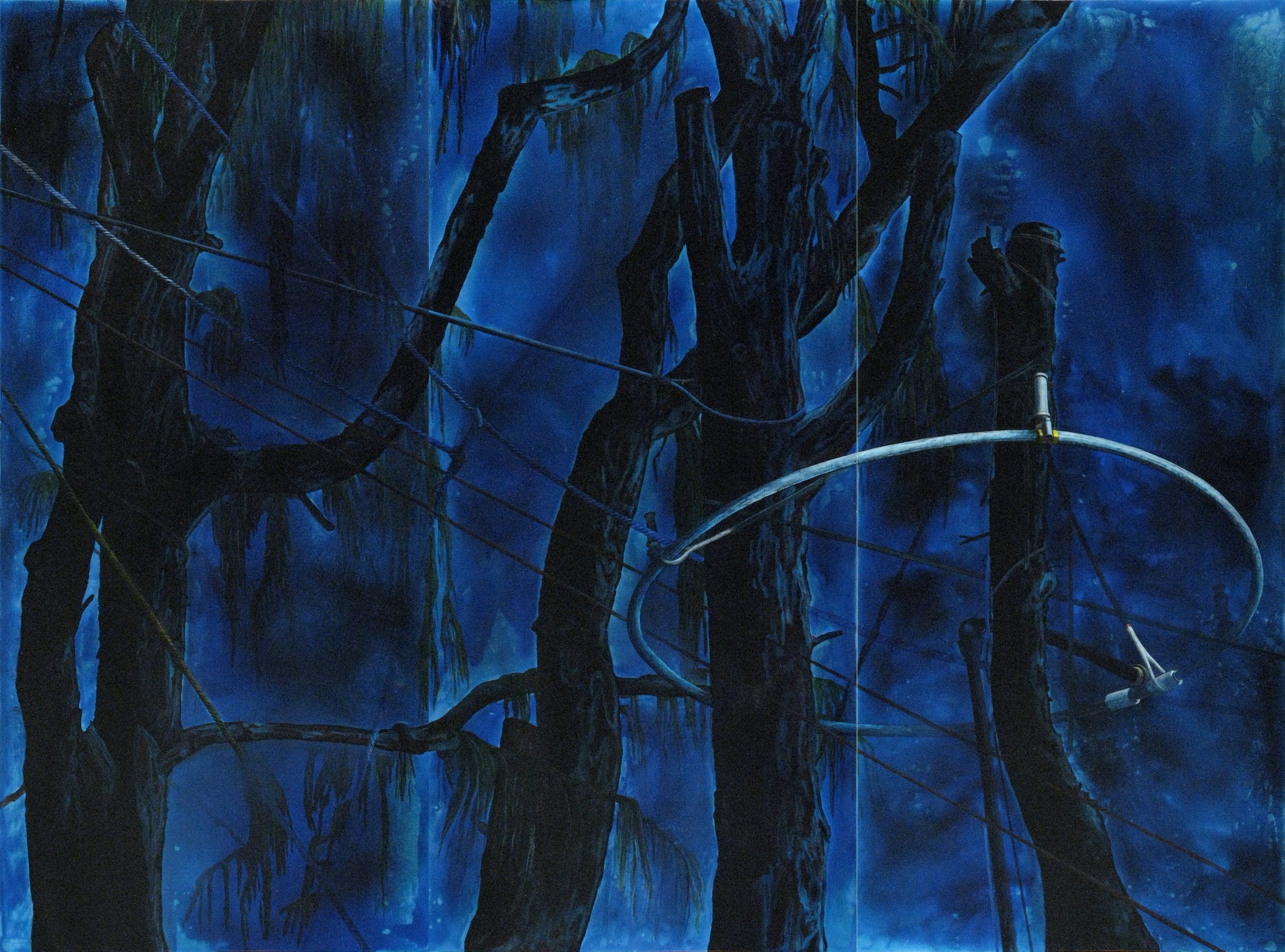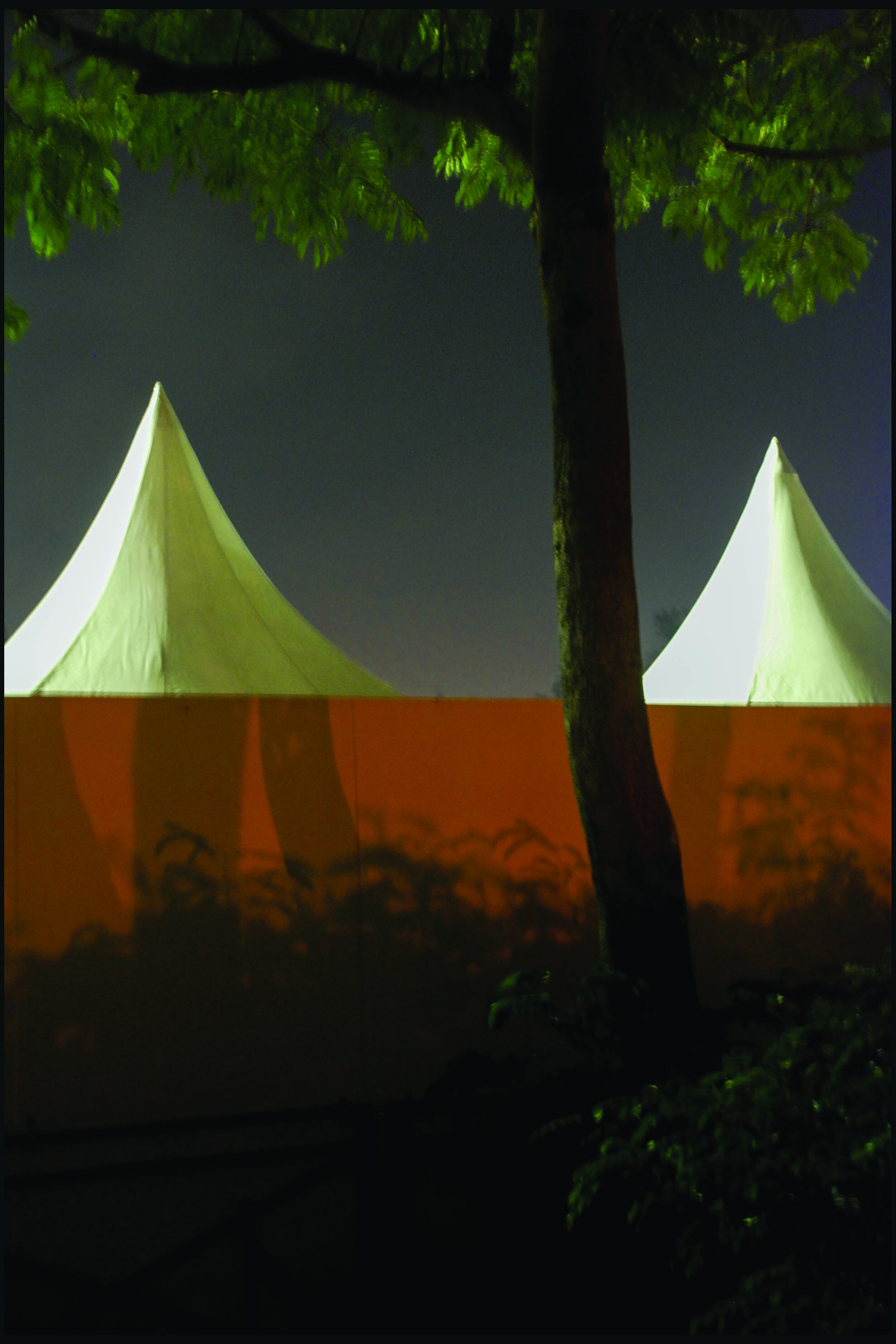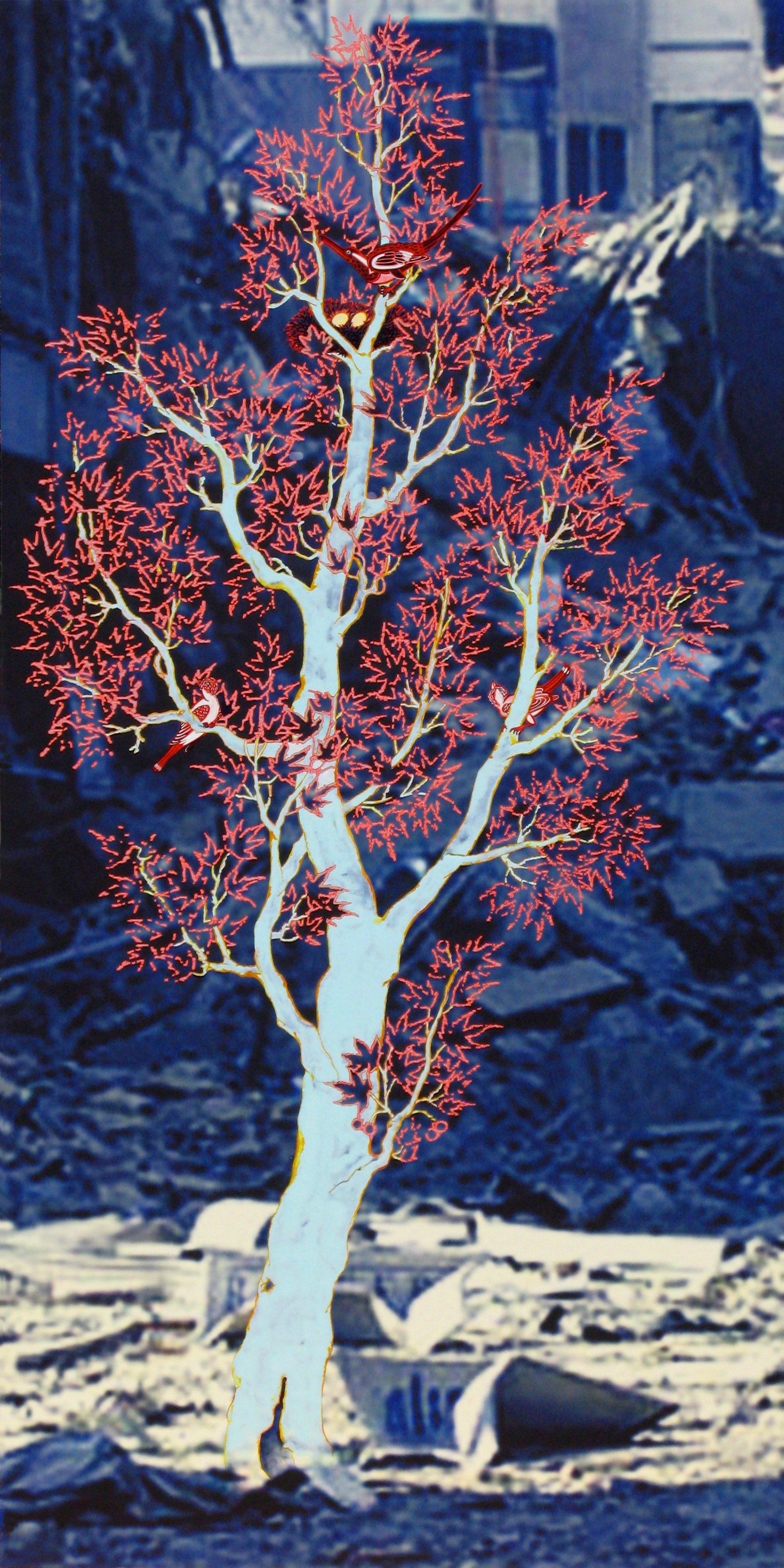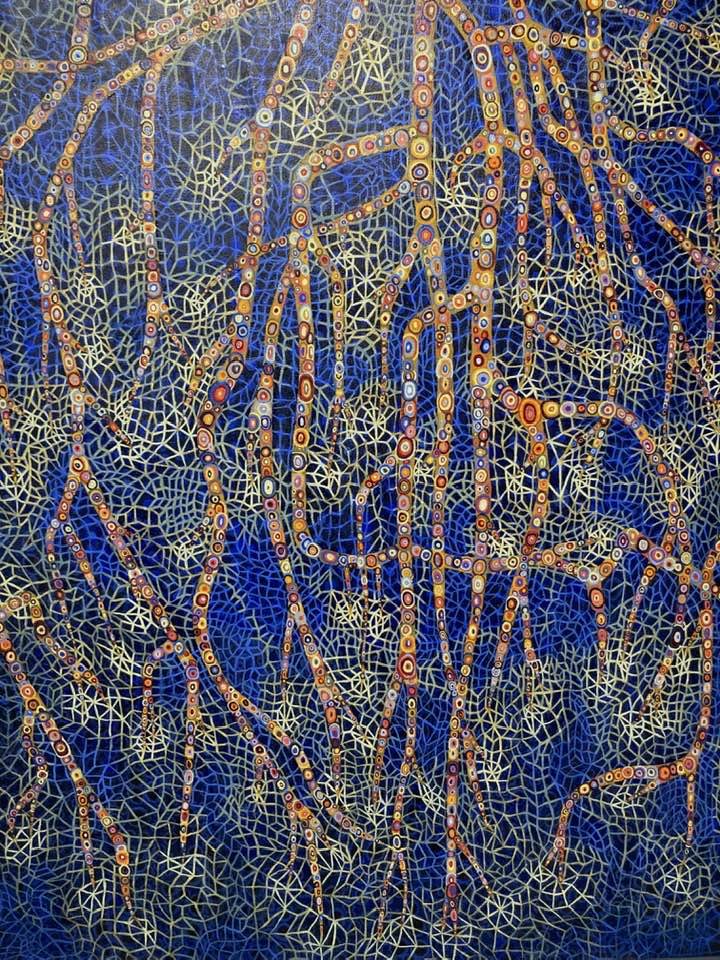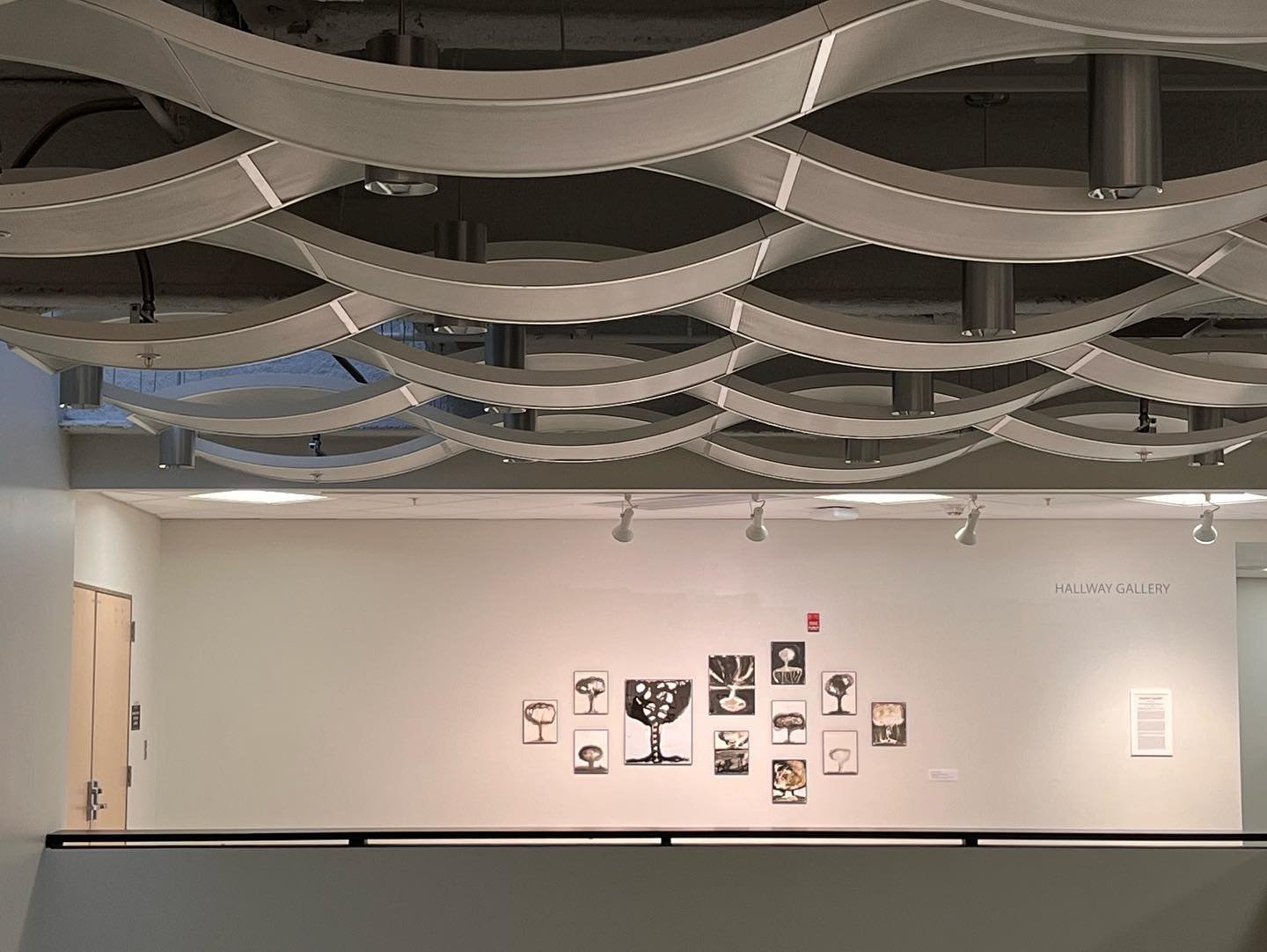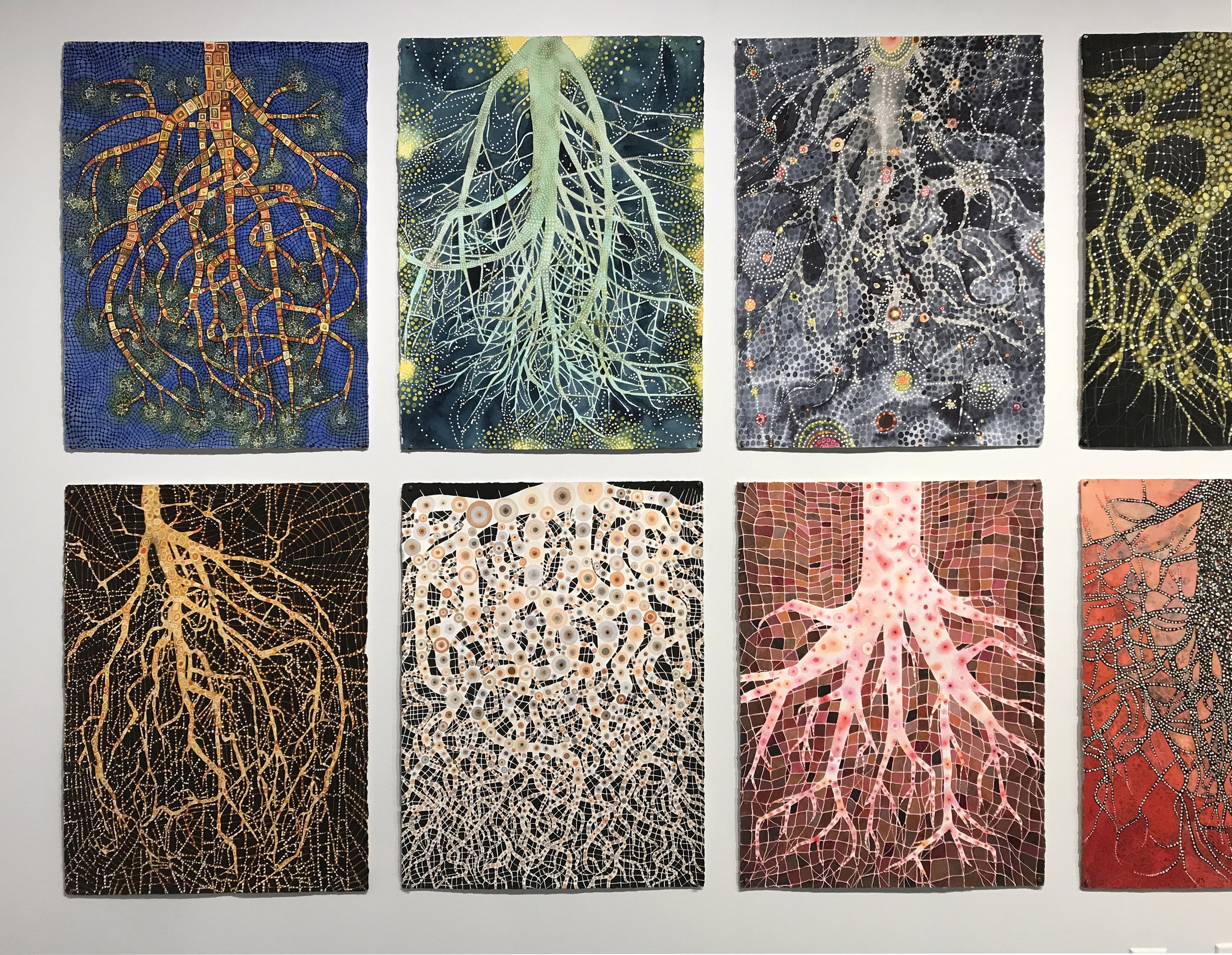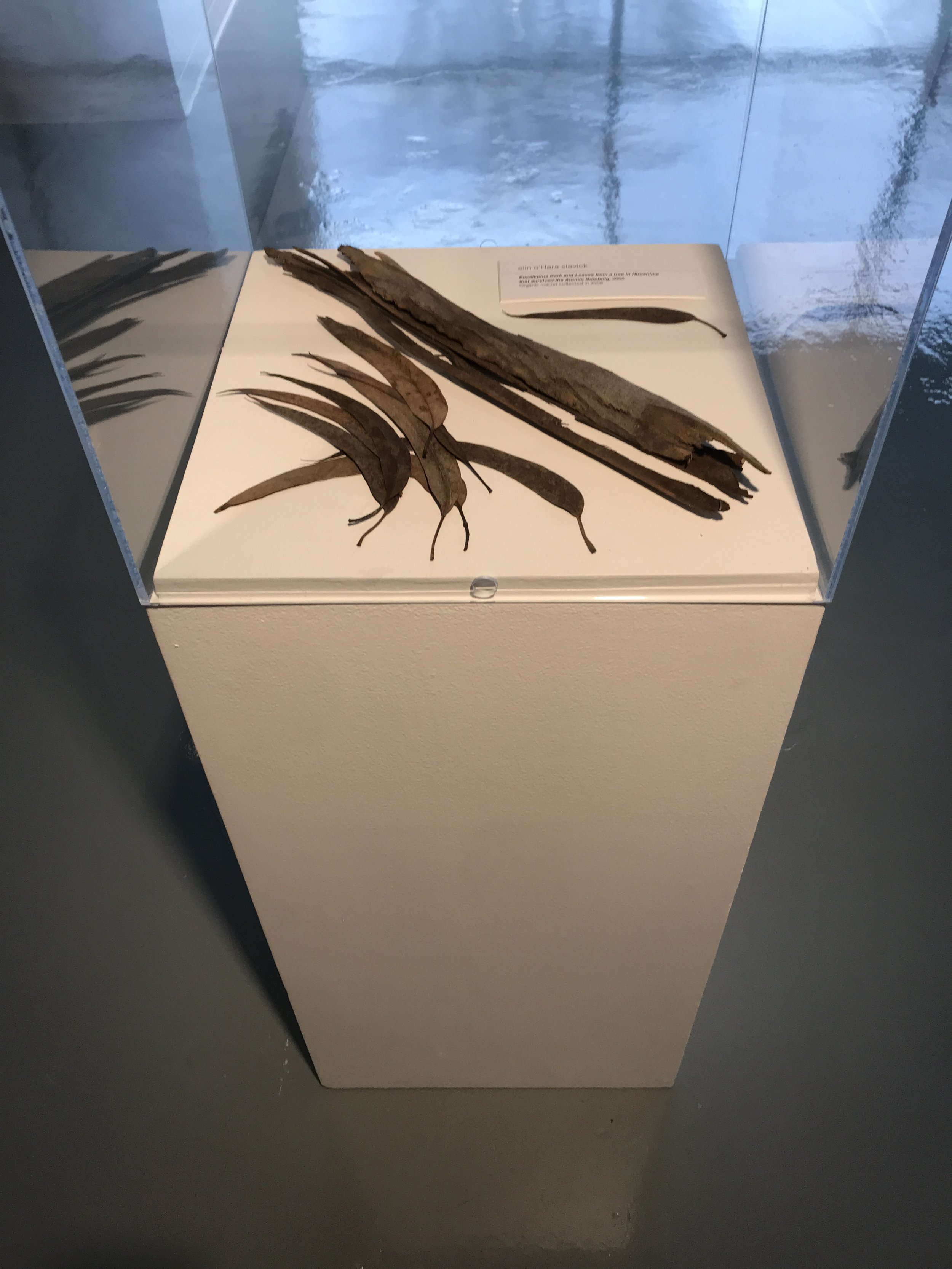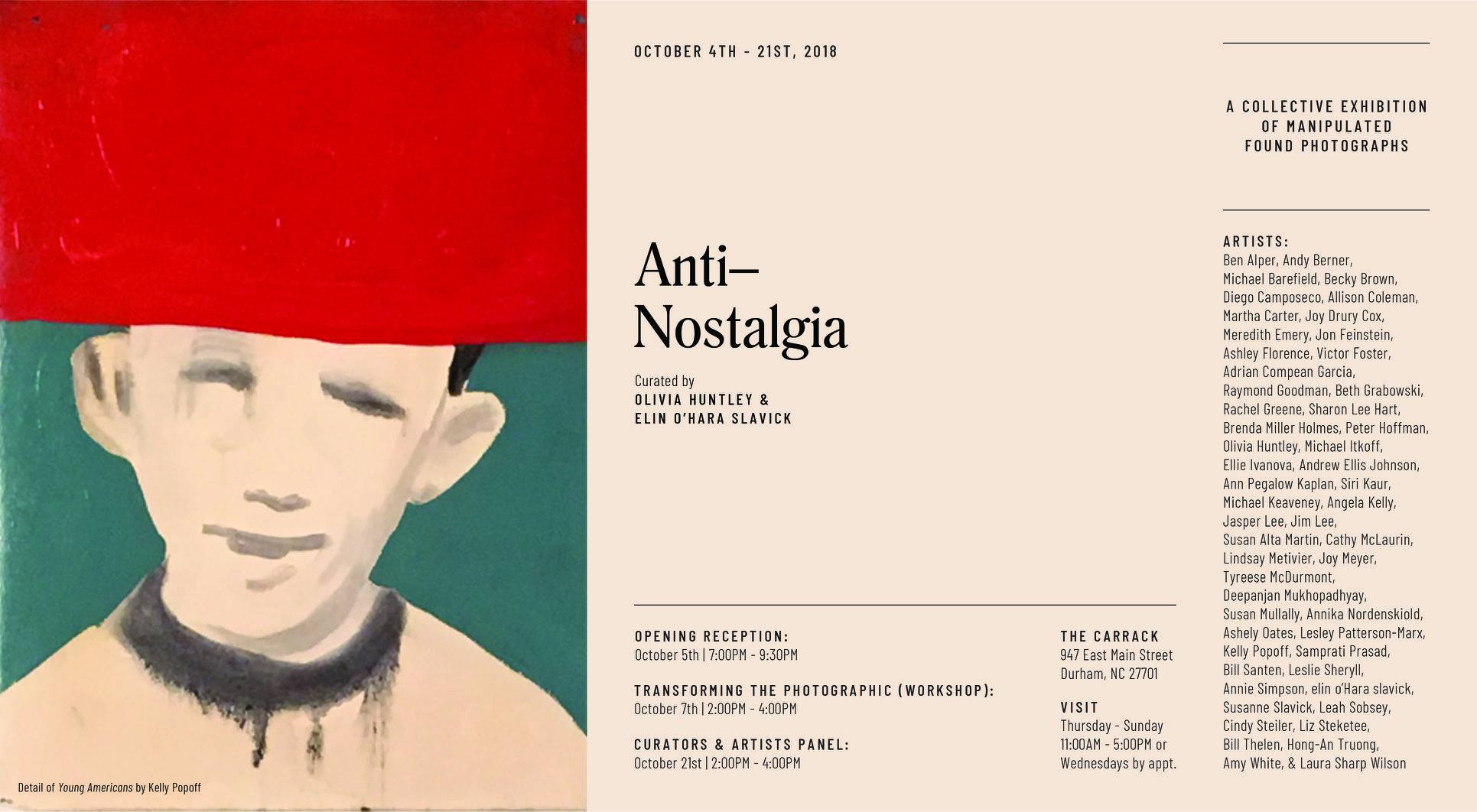At Ejecta Projects in Carlisle PA, January 24 - March 7, 2026
Interrogating the Visual Culture of Trumpism
Interrogating the Visual Culture of Trumpism includes a chapter co-authored by Andrew Ellis Johnson and Susanne Slavick on Johnson’s DRAIN series.
Edited by Grant Hamming and Natalie Philips. Published by Routledge (2024).
Drain presents a collection of annotated drawings that camouflage Trump’s calumny with the glitz of his notorious ersatz aesthetic. The luxurious trappings of the former president’s personal and business properties are depicted as protecting and comforting creatures of the swamp, exposing the emptiness of his campaign promise “to drain the swamp in Washington” with ethics reforms “to make our government honest once again." The devil is in the details of the decor, and the corruption that perpetuates it, ensuring the persistence of vice and venality. Some of the swamp creatures appear as inflatable toys, to be tolerated, even enjoyed and played with. Like his charge to drain the swamp, they were never meant to be taken seriously.
Andrew Ellis Johnson, Sanctuary of Style (Tower), 2023, ink on paper, 50 x 55.5 inches
SUSANNE SLAVICK: up in the air, in deep water, on shaky ground
Handwerker Gallery, Ithaca College, New York
August 29 - October 13, 2024
FAMILY TREE at ERIE ART MUSEUM
Erie Art Museum, May 24 - EXTENDED THROUGH NOVEMBER 19, 2023
Erie Art Museum Quarterly, Spring 20233, Issue 1:4
FAMILY TREE
elin o'Hara slavick, Madeleine Slavick, Sarah Slavick, and Susanne Slavick
USA TOUR:
Sordoni Art Gallery, Wilkes University, Wilkes-Barre PA, April 22 – June 1, 2025
Martin Art Gallery, Muhlenberg College, Allentown PA, January – March, 2025
Erie Art Museum, Erie PA, May 18 - November 19 , 2023
Dowd Gallery, SUNY Cortland, October 24 - December 2, 2022
Erie Art Museum gallery tour here
Erie Art Museum installation documentation here
Dowd Gallery virtual tour here
Dowd Gallery documentation here
10min videos by the four artists here
An extensive Maine Art Journal article about the project here.
Dowd Gallery press release here:
Info here
Programmed events at SUNY Cortland here. (Scroll down chronologically.)
_________
The College Art Association CAA Committee on Women in the Arts chose Family Tree Whakapapa as an April 2021 pick with this summary:
This exhibition brings together the artwork of four sisters living in different parts of the globe and focuses on the related but distinct ways they engage with the arboreal imagination. Tangled into their photographs, paintings, life histories, and political commitments, the trees in their artwork are intricate lines, bold shapes, diffuse traces, and stylized patterns. Defying the ease with which the genealogical and botanical connect in the figure of the family tree, the Slavick sisters make it a thing of wonder: rooted in the ground and multiplying in our imaginations, family trees are botany and biology written with longing, hope, history, and loss.
FAMILY TREE features the work of four sisters: elin o’Hara Slavick (Irvine CA), Madeleine Slavick (Wairarapa, New Zealand), Sarah Slavick (Boston MA) and Susanne Slavick (Pittsburgh PA). As curators, painters, photographers and writers, all have incorporated images of trees in social, political and environmental conditions — trees that stand as refuge and livelihood, consumed and consuming, under assault and triumphant, as historical record and as harbinger of things to come. The exhibition offers perspectives both unsettling and soothing as nature increasingly reflects salient issues of our times.
In its beauty and bounty, nature is often regarded as benign and apolitical. We do not expect a tree to assume an editorial stance or embody ideology. The conceptual, analytical and sensual intersect in Family Tree with works that probe the multitude of relations within and between trees and humans. Branching out to, and from, the world, the artists address a variety of concerns.
Based on her experiences in Japan, elin o’Hara slavick presents photographic works that bear witness to the ongoing aftermath of atomic bombs in Hiroshima and Nagasaki and the nuclear power disaster in Fukushima. Madeleine Slavick’s photographs reveal dichotomies and their collapses in our experience of nature in environments both rural and urban—they decry the marginalization of trees. Sarah Slavick’s paintings explore the underground life of trees in an elegiac series that conveys both grief and hope, for what is threatened and for what might survive through possible strategies that trees offer—for all species on the planet. Susanne Slavick hand paints trees derived from ‘tree of life’ carpet designs over printed scenes of environmental destruction and depredation. These trees do not lie down like doormats; they rise up and persist, suggesting the possibility of recovery.
FAMILY TREE WHAKAPAPA premiered at Aratoi Wairarapa Museum of Art and History, Masterton, New Zealand, December 12, 2020 – February 14, 2021 and traveled to Wallace Arts Centre, Auckland, NZ, April 21 - June 13, 2021.
Note: "Whakapapa" is a Maori concept that refers to placing oneself in a wider context, and linking oneself to land and community.
HUMAN ANIMAL II COLLOQUIUM
Susanne Slavick presents Agitating Animals in this international colloquium, September 28-29 in Slovakia. Includes the work of Patricia Bellan-Gillen, Josh Bienko, Andrew Ellis Johnson, Lavar Munroe and Stephanie Ross.
Organized by Katarína Balúnová within the framework of Galéria umelcov Spiša’s Human Animal series of exhibitions, loosely interconnected with the current exhibition Human Animal II. / The Wolves Are Full, the Sheep Are Safe, the Pigs Are Laughing.
The colloquium brings together experts from the fields of philosophy, ecology and art and addresses the relationship of humans and animals not only from a cultural, historical and ethical perspective, but also in a broader sense in terms of the entire living environment.
STOLEN GOODS
Marketview Arts, York College, York PA
Co-curated by York College Gallery Director Matthew Clay-Robison and Visiting Curator Matthew Apol. January 6 -February 23, 2022
Opening on the anniversary of the Capitol insurrection, this exhibition explores “the big lie” behind the Stop the Steal movement, looking deeper into questions of who the country belongs to, who gets to protest, and what has been stolen from whom throughout American history.
Stolen Goods features artists Dread Scott, Susanne Slavick, Andrew Ellis Johnson, Kate Kretz, Jefferson Pinder, Juan Juarez, Dillion Samuelson, Ivy Rodgers, Justin Ruby, Joe Velasquez, Josephine Hyde, Chawky Frenn, Paul Rucker Matt Blackwell, Gregory Eltringham, Jacob Cullers, Deborah Dancy and Thomas Nazario.
Susanne Slavick, Retraction, 2021, Oil on panel, 12 x 18 inches
GETTING THERE
GETTING THERE: Andrew Ellis Johnson and Susanne Slavick
Sordoni Art Gallery, Wilkes University
June 21 – August 7 2022
JOURNAL OF VISUAL CULTURE: THE GUN ISSUE
The Journal of Visual Culture's new issue: "Armed/Unarmed: Guns in American Visual and Material Culture" Roundtable: The Politics, Ethics, and Aesthetics of Exhibitions about Guns. Contributions by Atteqa Ali, Jonathan Ferrara, Kathy O'Dell, and Susanne Slavick (Compiled by Faye Gleisser and Delia Solomons)
https://journals.sagepub.com/toc/vcu/current
With mentions of works by Mel Chin, Vanessa German, Jenn Meridian, Devan Shimoyama and others. And Unloaded artist Adrian Piper's work is reproduced in the Portfolio of Artworks compiled by Faye Gleisser and Delia Solomons.
MARX@200 REVIEW
A review of Marx@200 by Izabel Galliera in Journal of Curatorial Studies, Volume 7 Number 2, 2018.
Image: Slinko, Video still from Ghost Looking for its Spirit, 2012
ANTI-NOSTALGIA
A group show of manipulated found photographs
Curated by Olivia Huntley and elin o’Hara slavick
The Carrack / 947 E Main Street / Durham, NC / 27701
October 4-21, 2018
Opening Reception Friday, October 5, 7-9:30pm
Gallery Hours: Thursdays-Sundays 11am - 5pm and Wednesdays by appointment
With works by: Ben Alper, Andy Berner, Michael Barefield, Becky Brown, Allison Coleman, Diego Camposeco, Martha Carter, Joy Drury Cox, Meredith Emery, Jon Feinstein, Ashley Florence, Victor Foster, Adrian Garcia, Raymond Goodman, Beth Grabowski, Rachel Greene, Sharon Lee Hart, Brenda Miller Holmes, Peter Hoffman, Olivia Huntley, Michael Itkoff, Ellie Ivanova, Andrew Ellis Johnson, Ann Pegalow Kaplan, Siri Kaur, Michael Keaveney, Angela Kelly, Jasper Lee, Susan Alta Martin, Cathy McLaurin, Lindsay Metivier, Joy Meyer, Deepanjan Mukhopadhyay, Susan Mullally, Annika Nordenskiold, Ashely Oates, Lesley Patterson-Marx, Kelly Popoff, Samprati Prasad, Bill Santen, Leslie Sheryll, Annie Simpson, elin o’Hara slavick, Susanne Slavick, Leah Sobsey, Cindy Steiler, Liz Steketee, Bill Thelen, Hong-An Truong, Amy White, Laura Sharp Wilson
Workshop / Panel
October 7, Sunday, 2-4pm with Michael Keaveney – Transforming the Photographic
October 21, Sunday, 2-4pm
Panel discussion / gallery talk with curators Olivia Huntley and elin o’Hara slavick and local artists in the exhibition, including Ben Alper, Deepan Mukhopadhyay and Ann Pegalow Kaplan
Desire has no history. – Susan Sontag
Anti-Nostalgia is a group exhibition of artists invited to create works utilizing found photographs. Artists explore: our relationship to the photograph as an object; memories and sentimentality; history and the familial; the vernacular and the archive; and alternative and interventionist narratives. A photograph provides both a historical and unattainable reality. Anti-Nostalgia investigates how our attraction to and/or repulsion by found photographs does not come from nostalgia, but comes from a desire to confirm, deny and transform a reality. Theorists argue that nostalgia can be a form of fascism - a longing for a glorified past that leads us down an authoritarian path. Anti-Nostalgia is a topical and critical approach to our current global situation, an attempt to draw attention to the way we read, feel, understand and use imagery in the name of ideology and personal whim.
